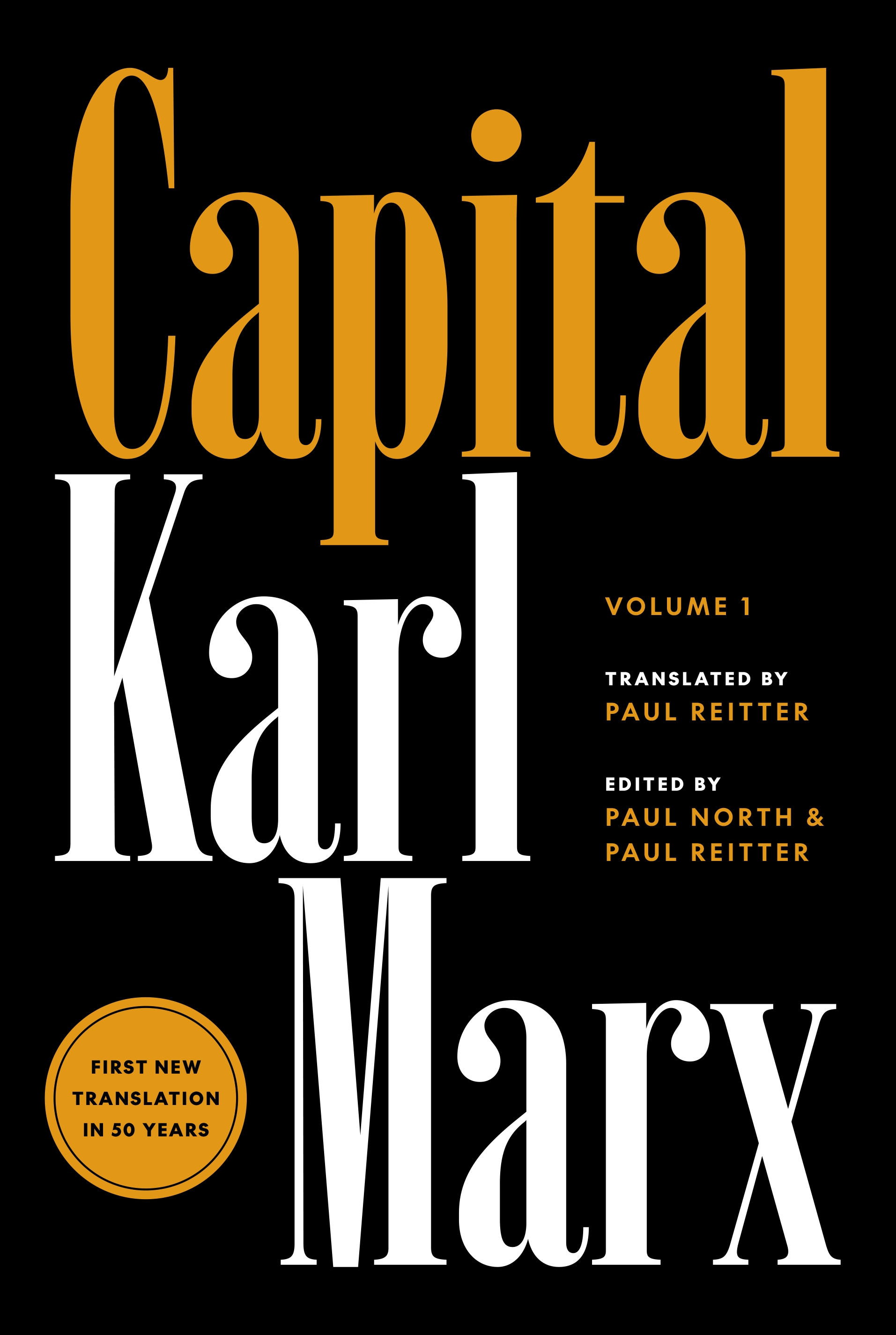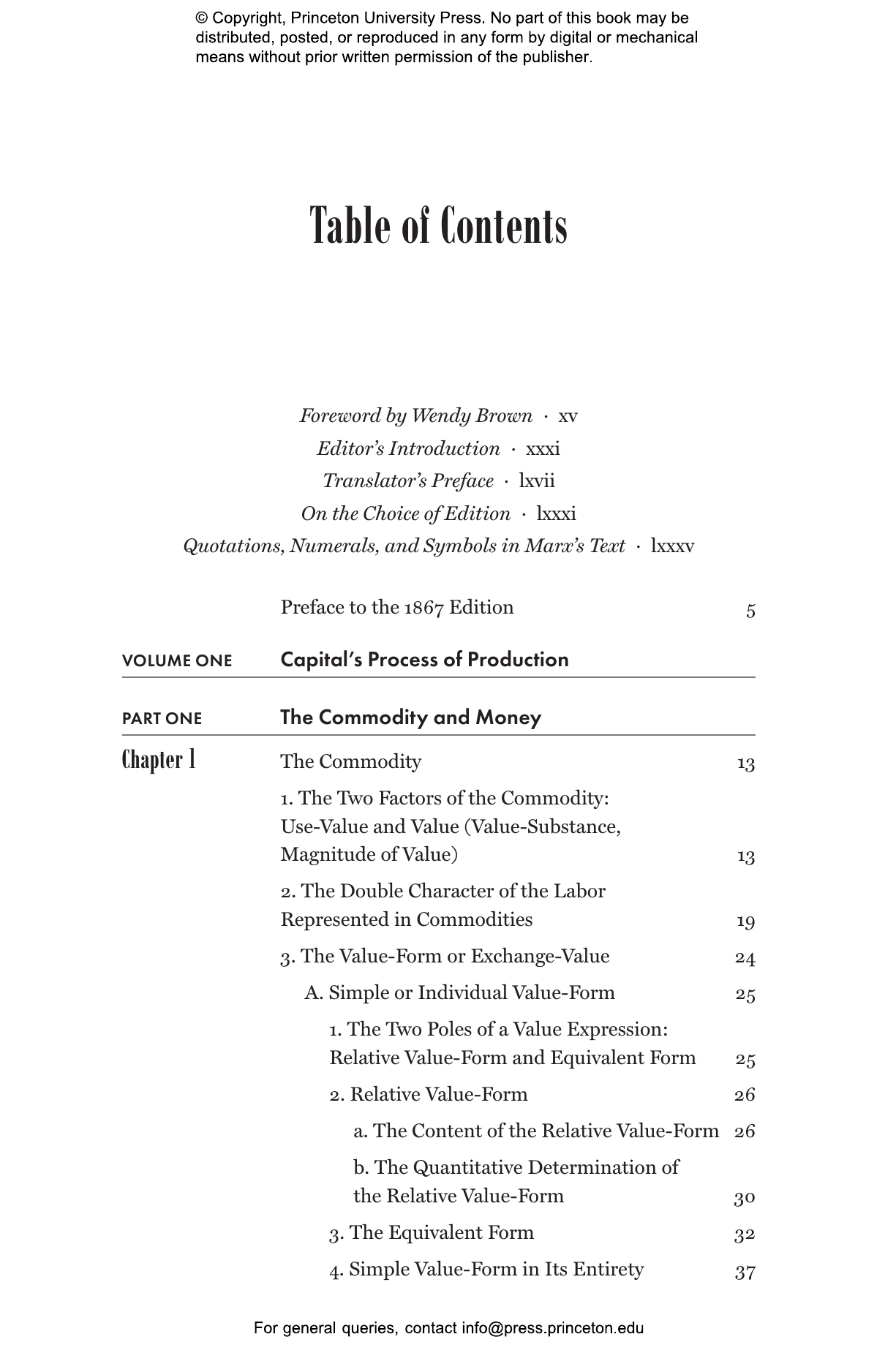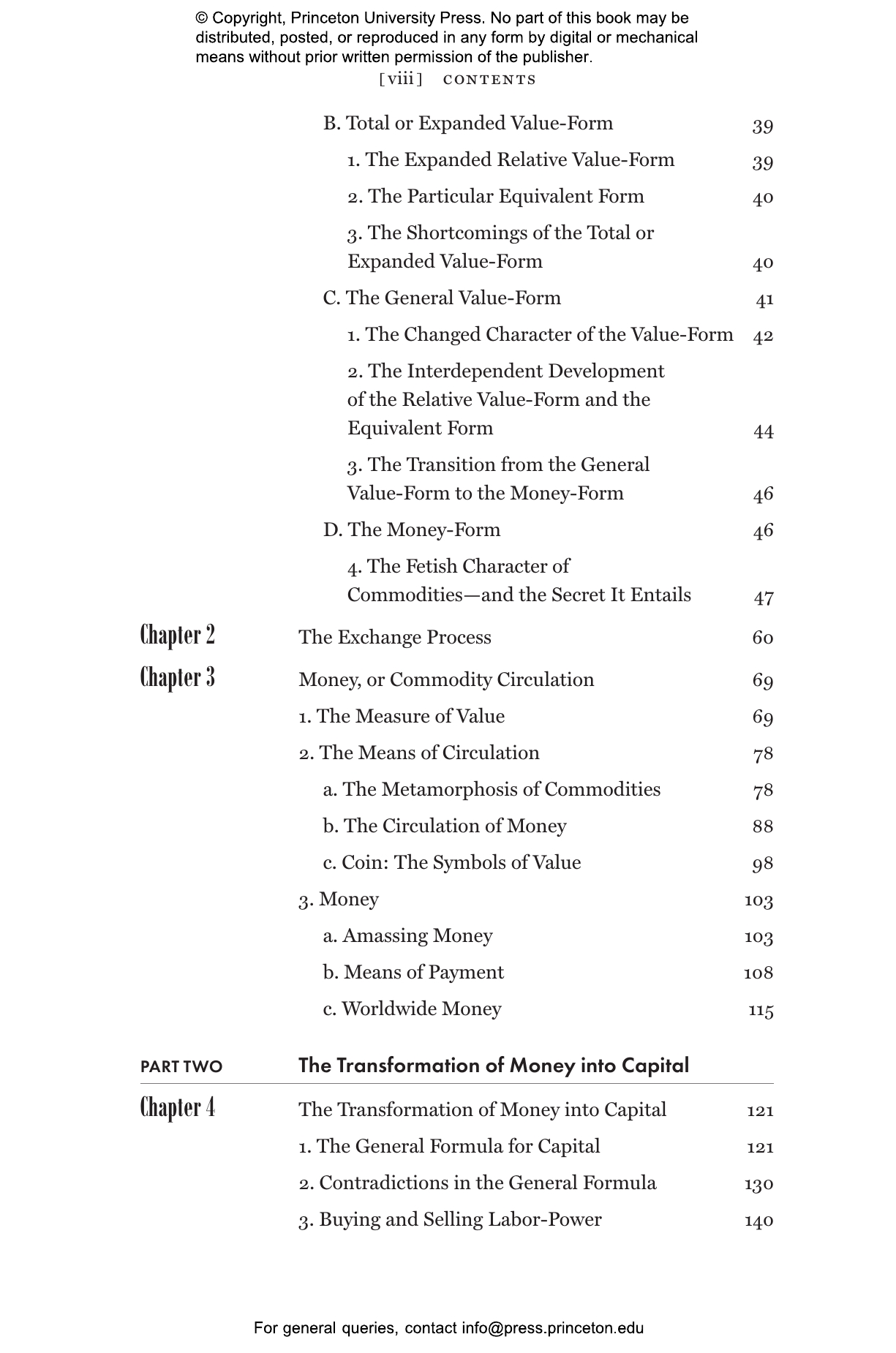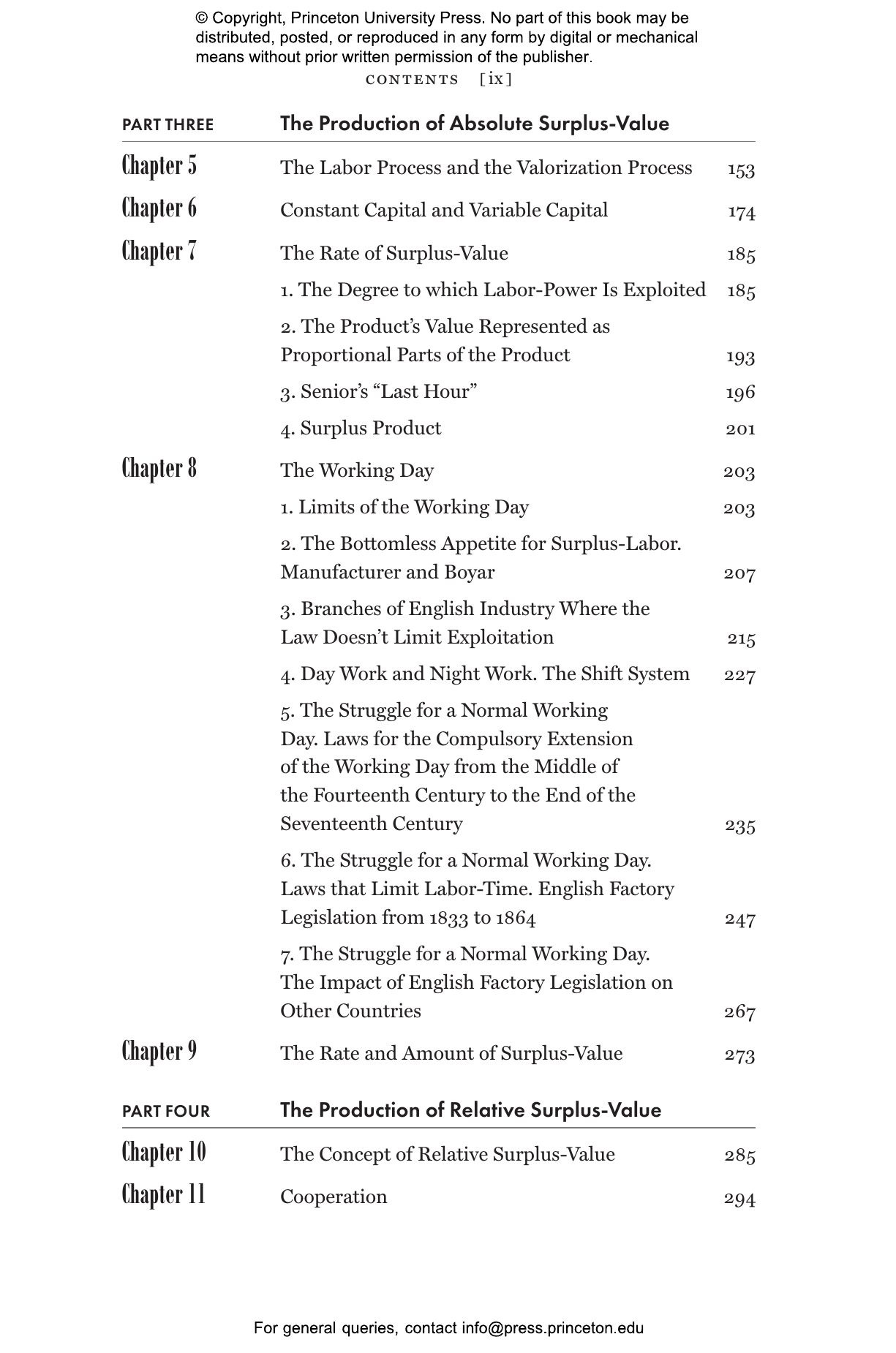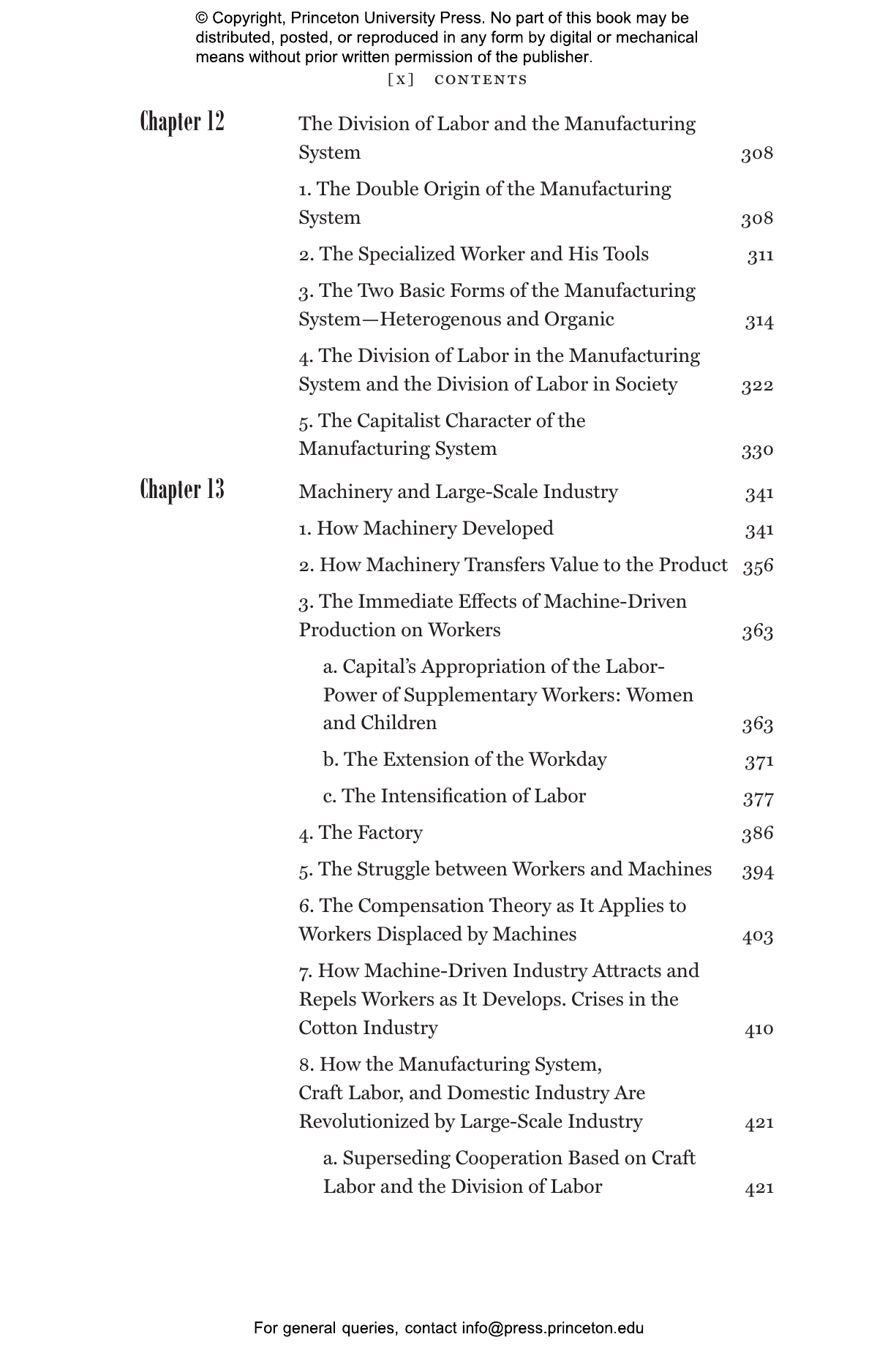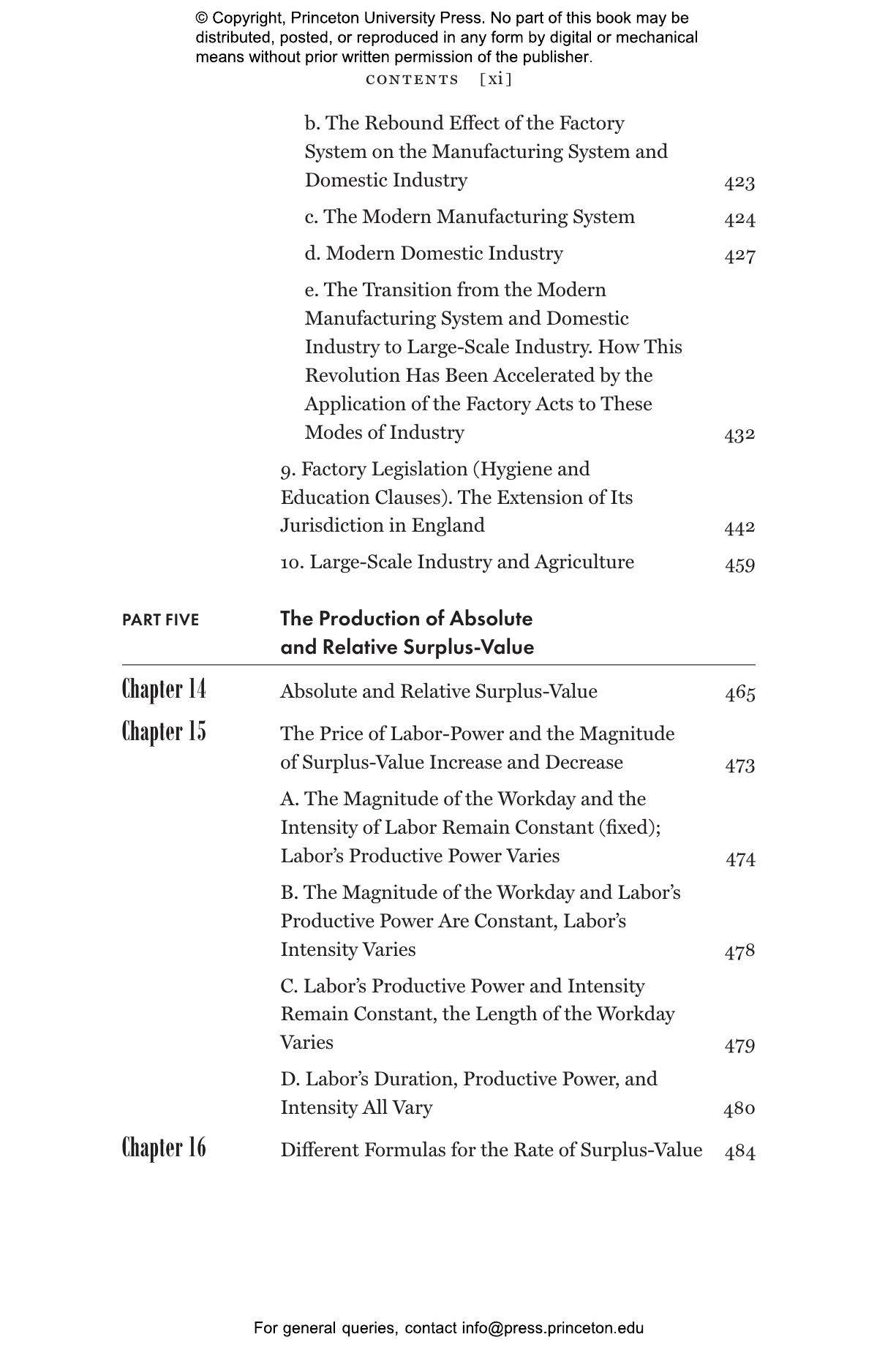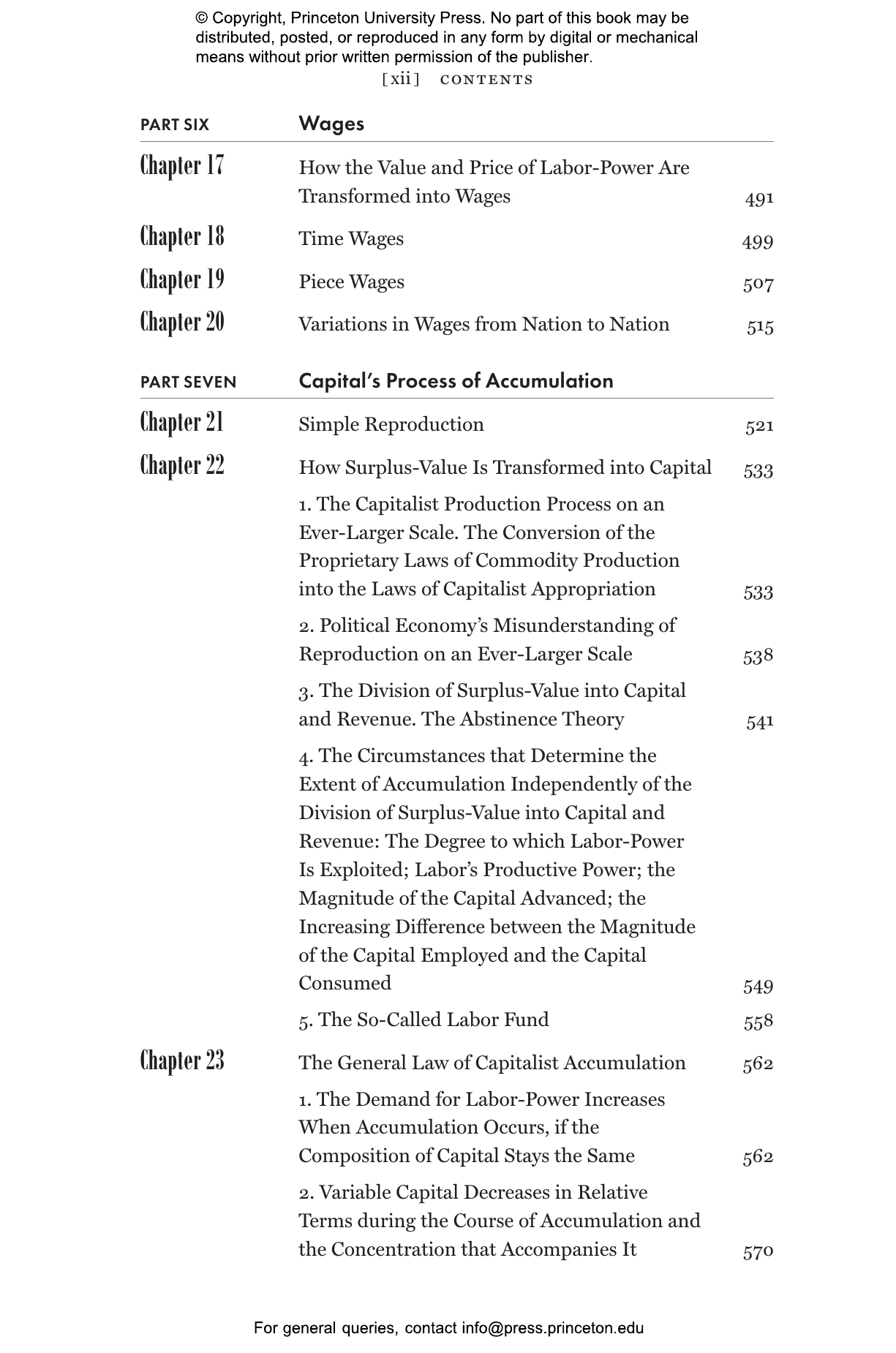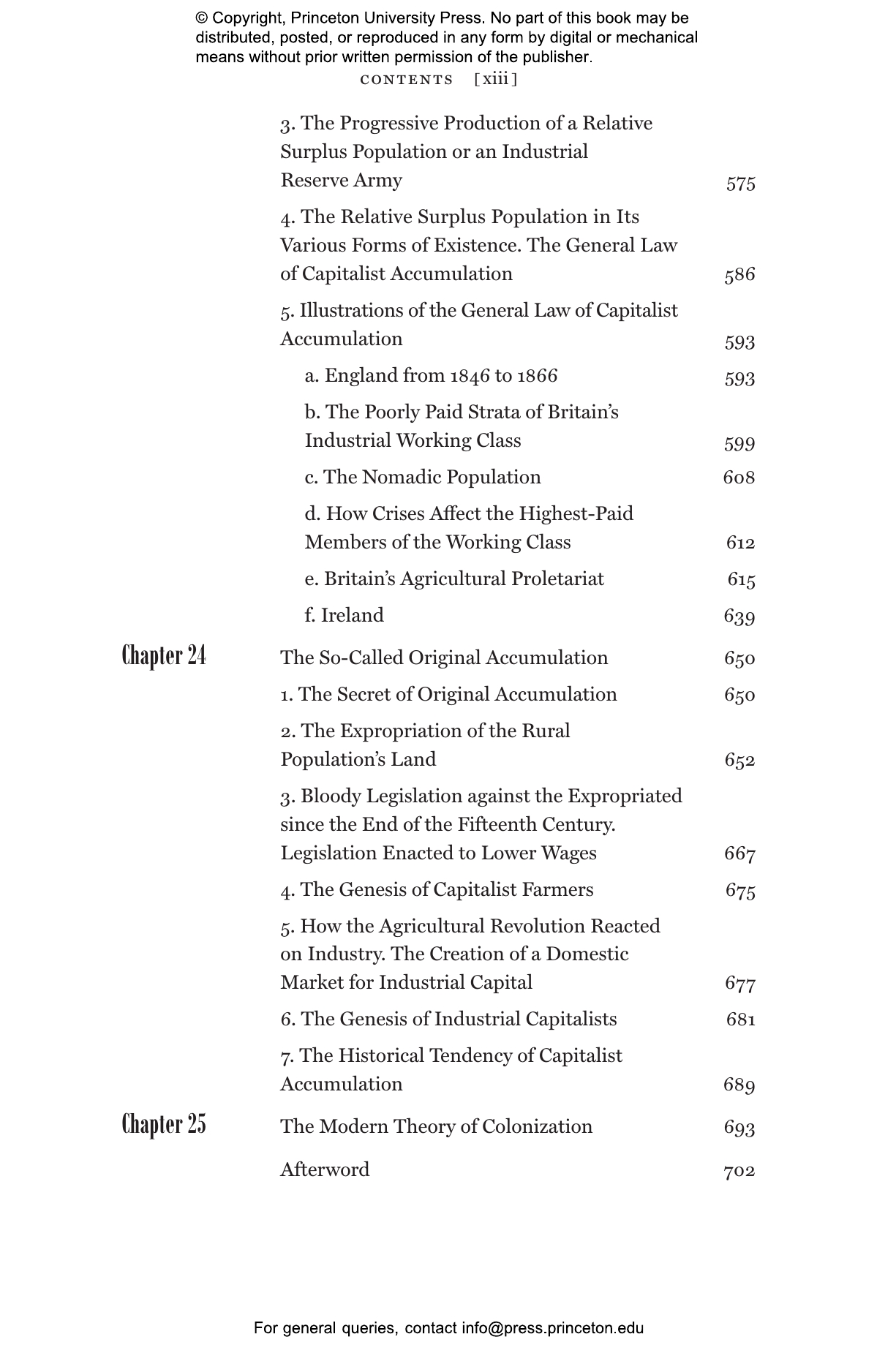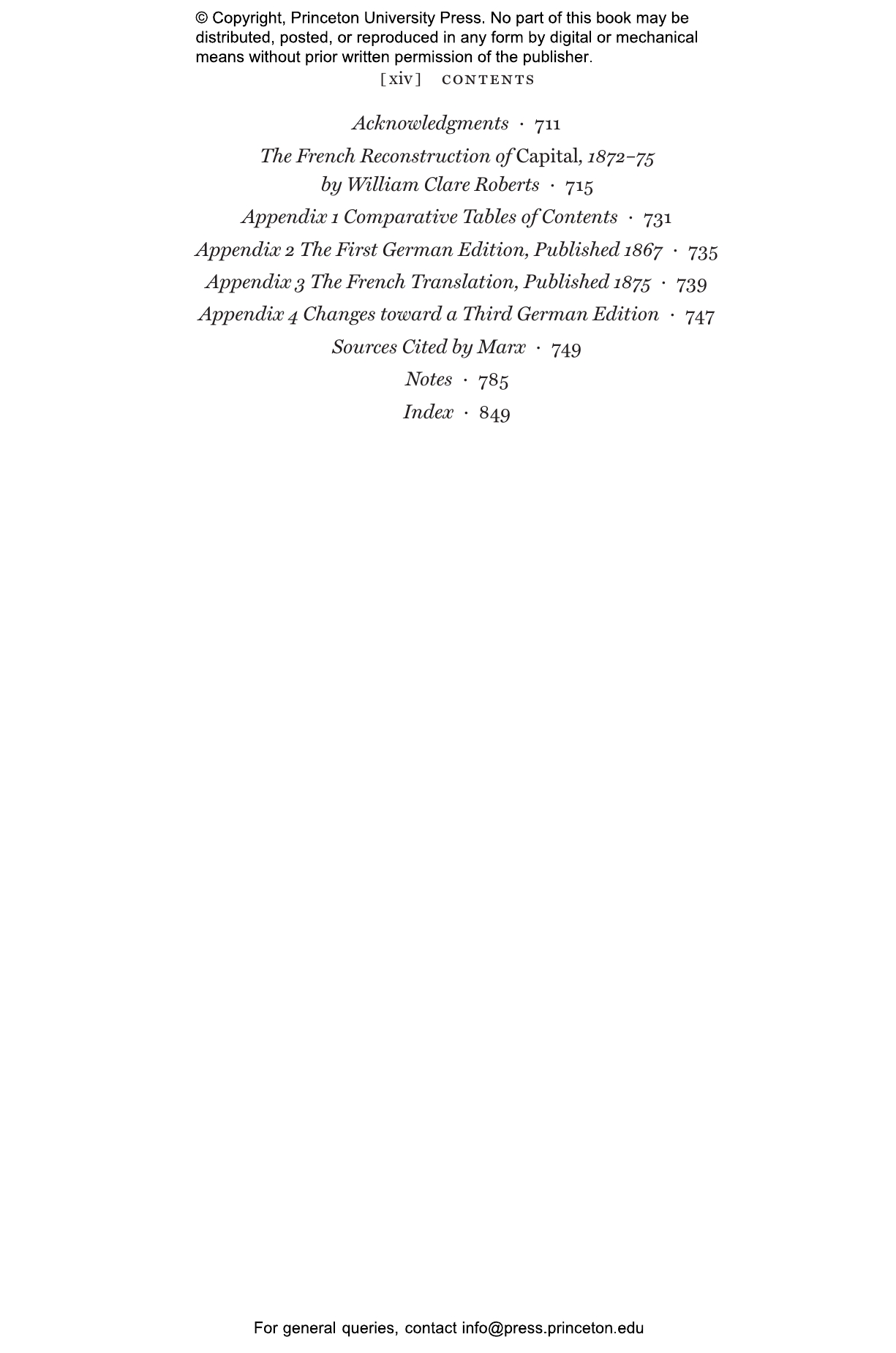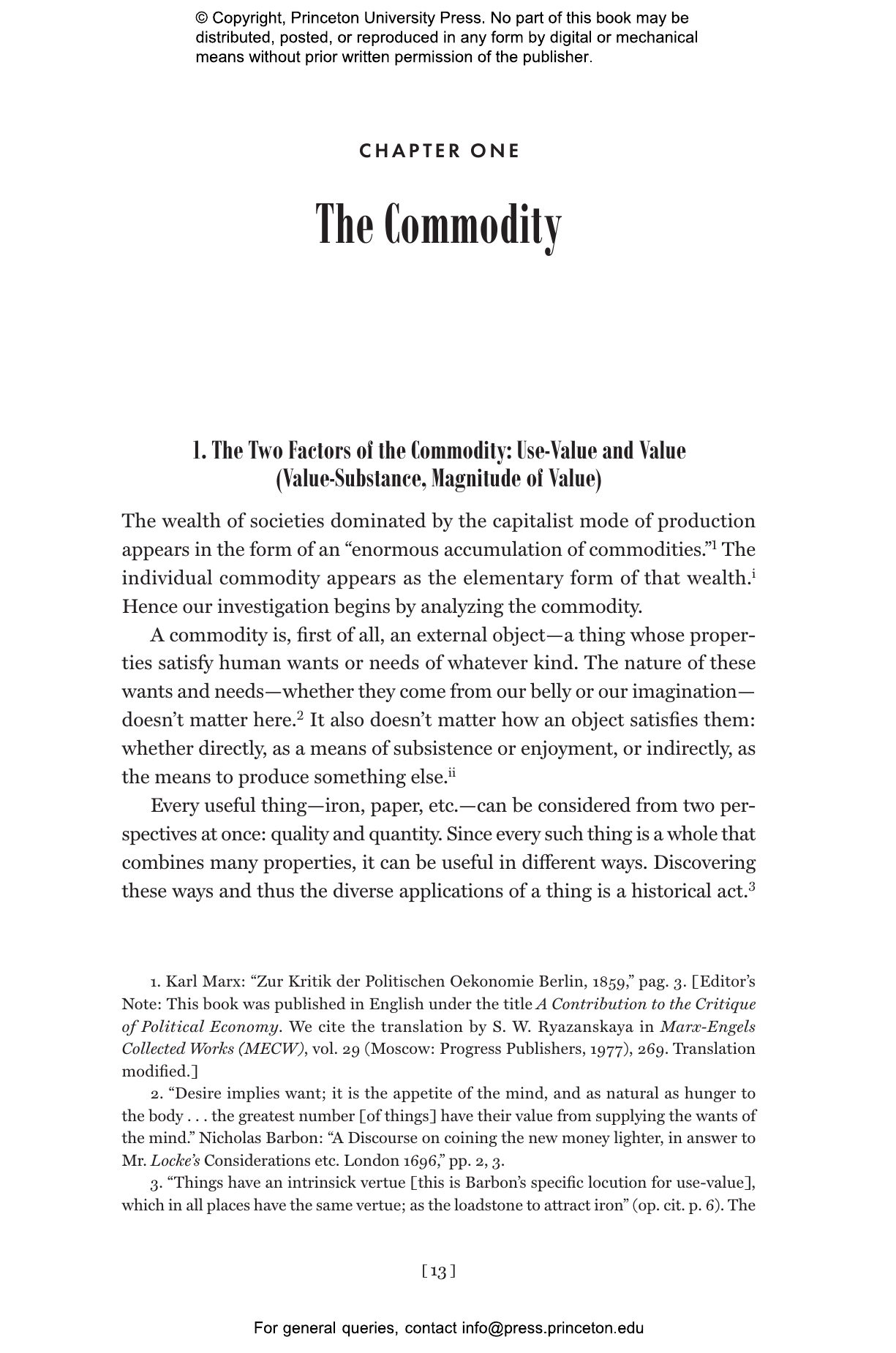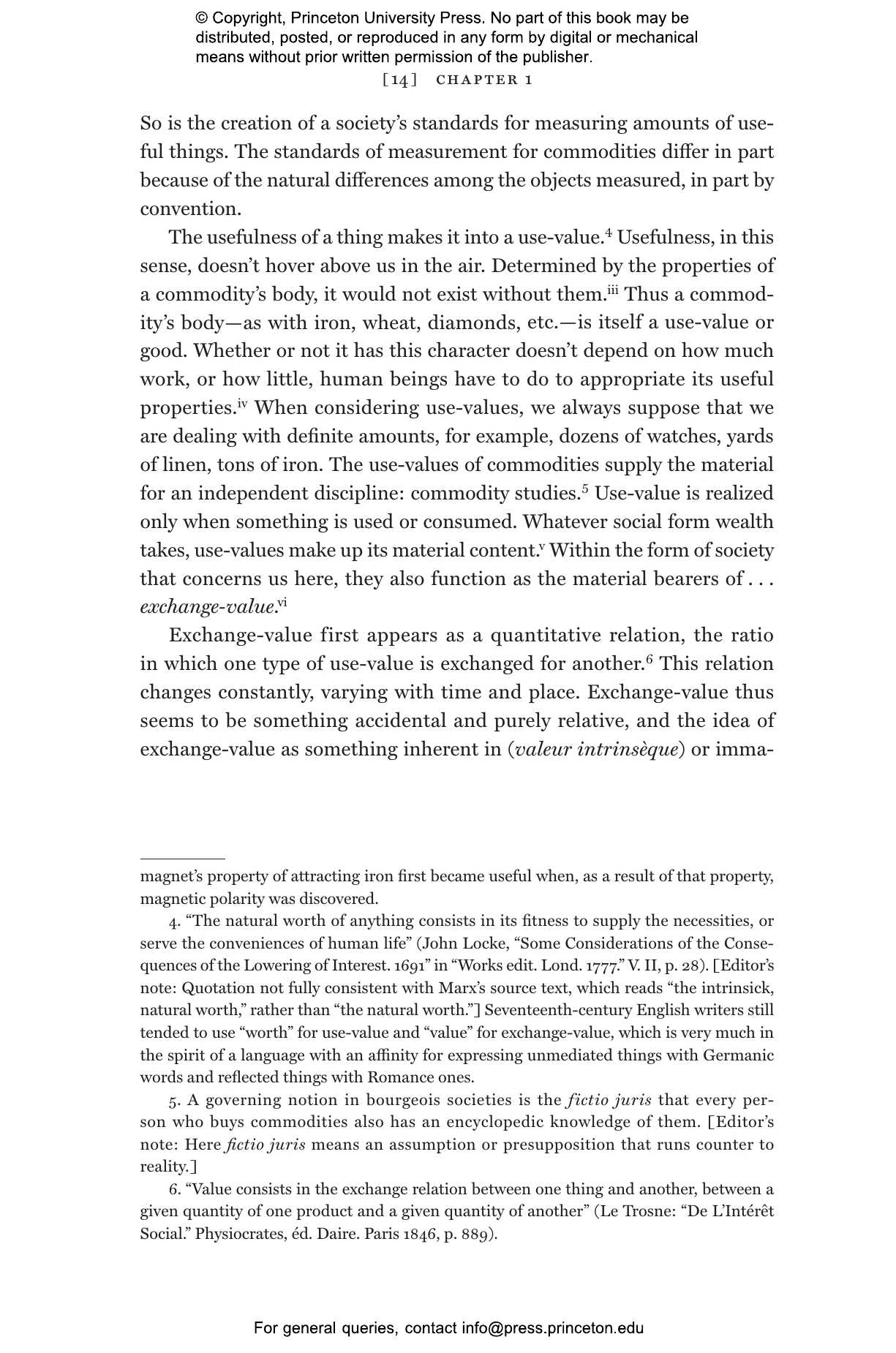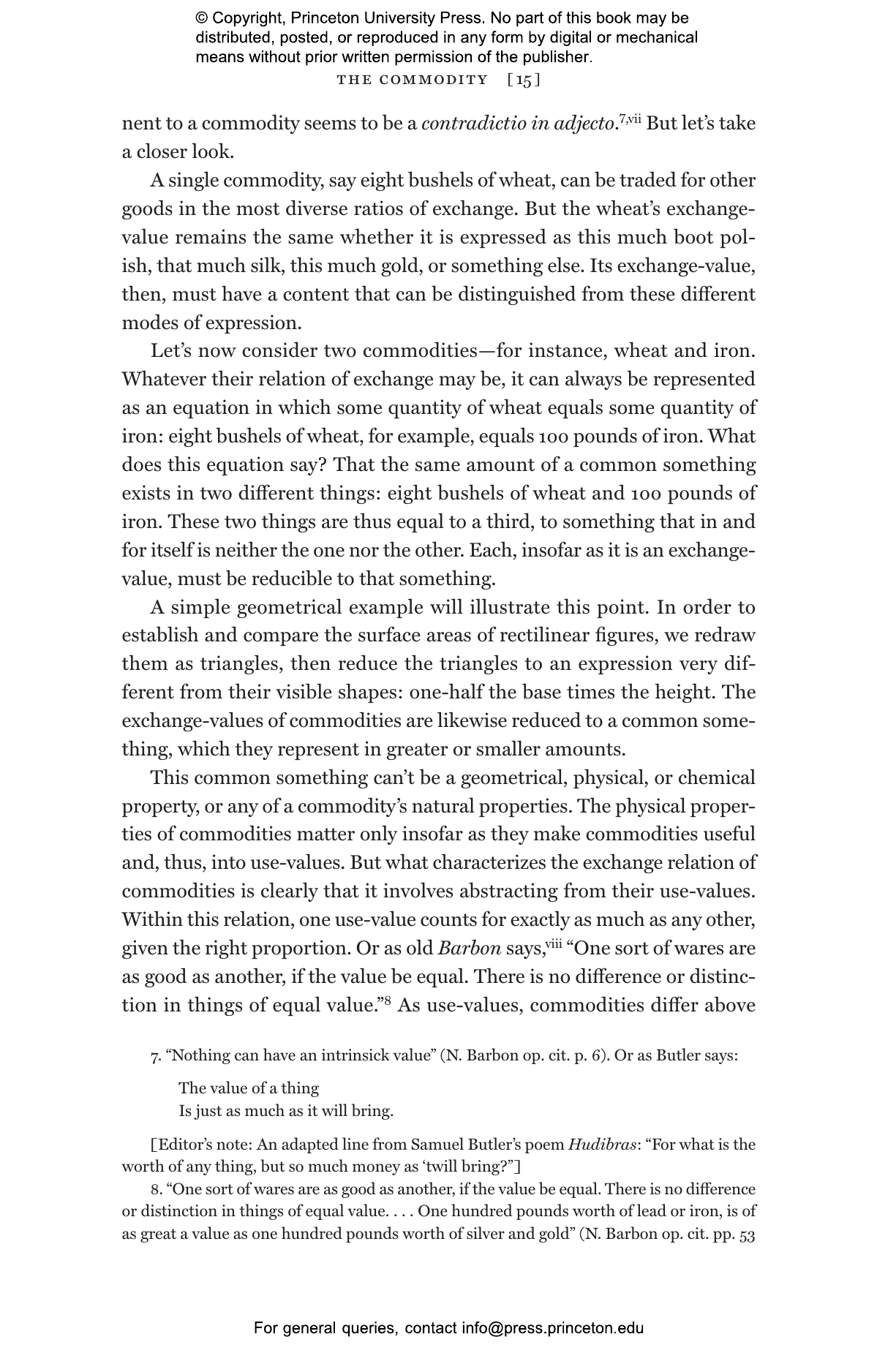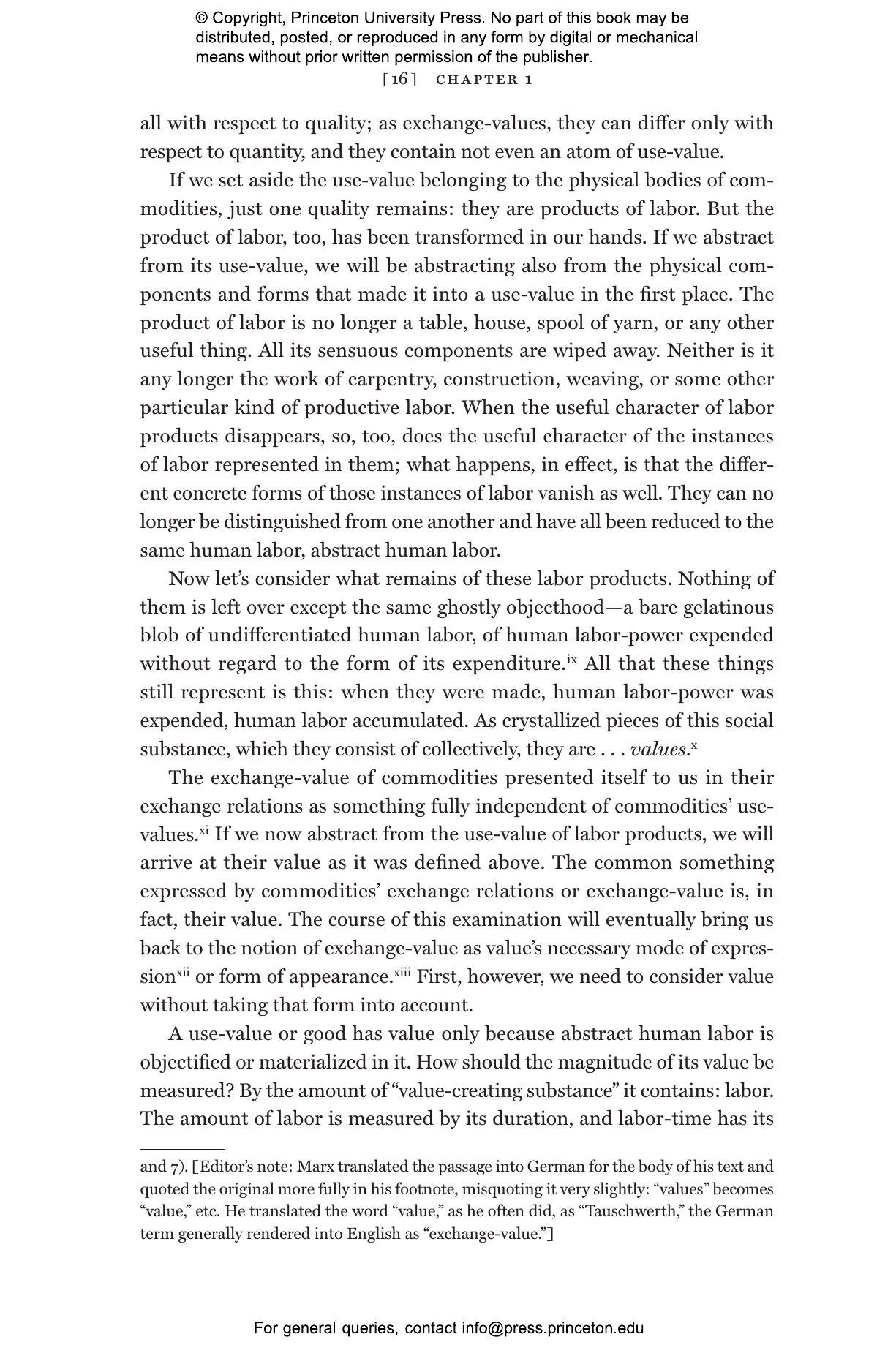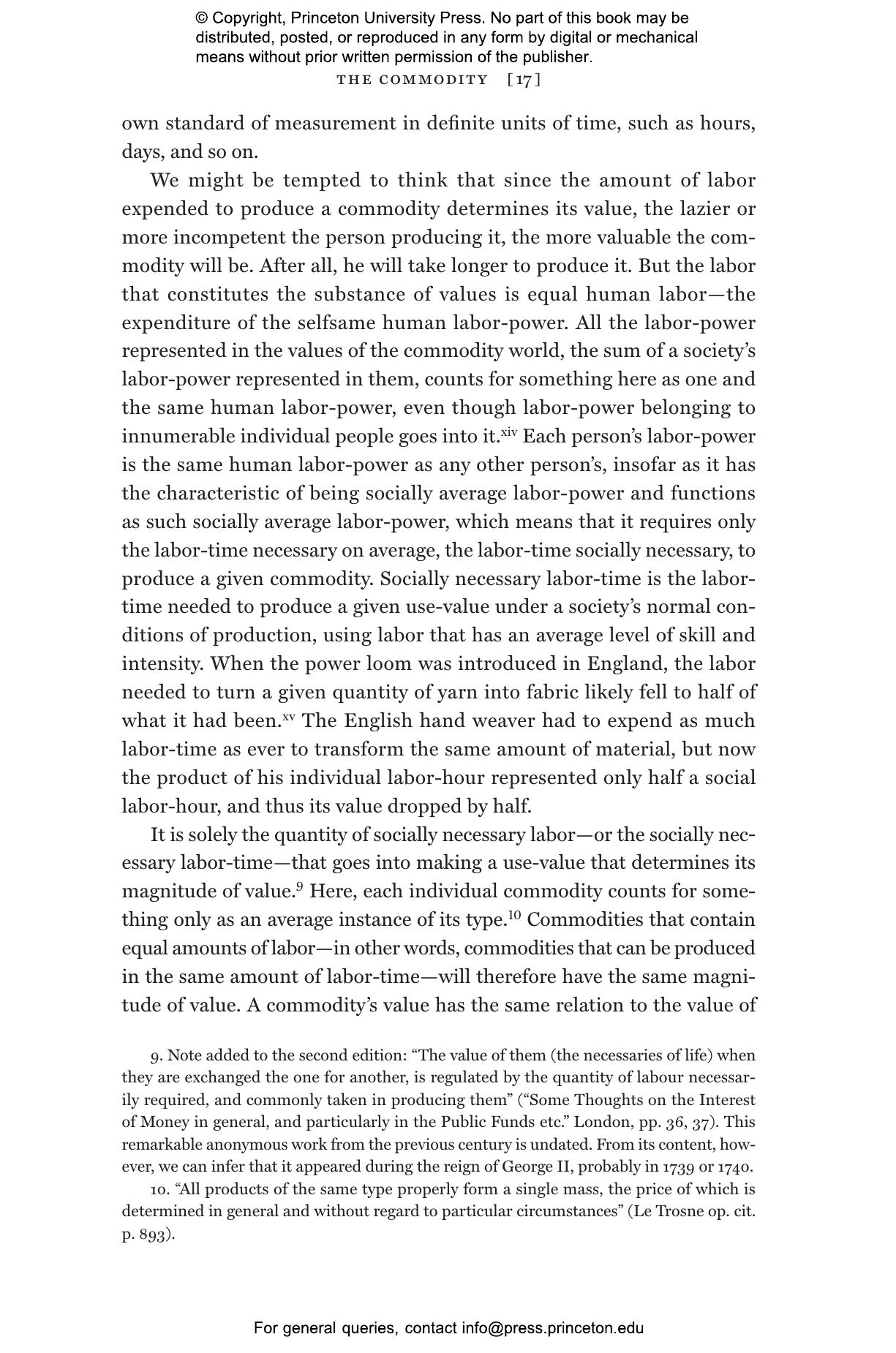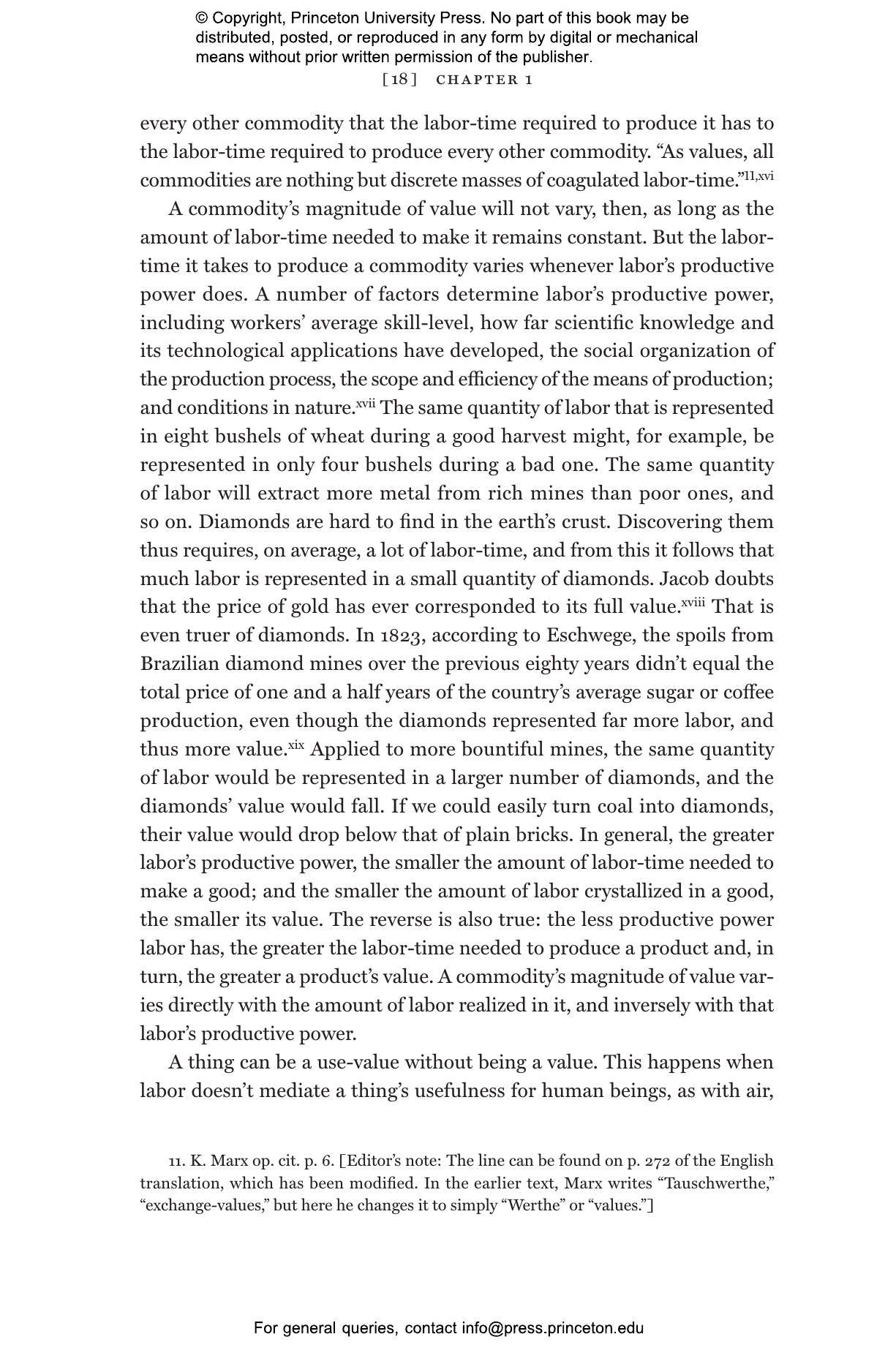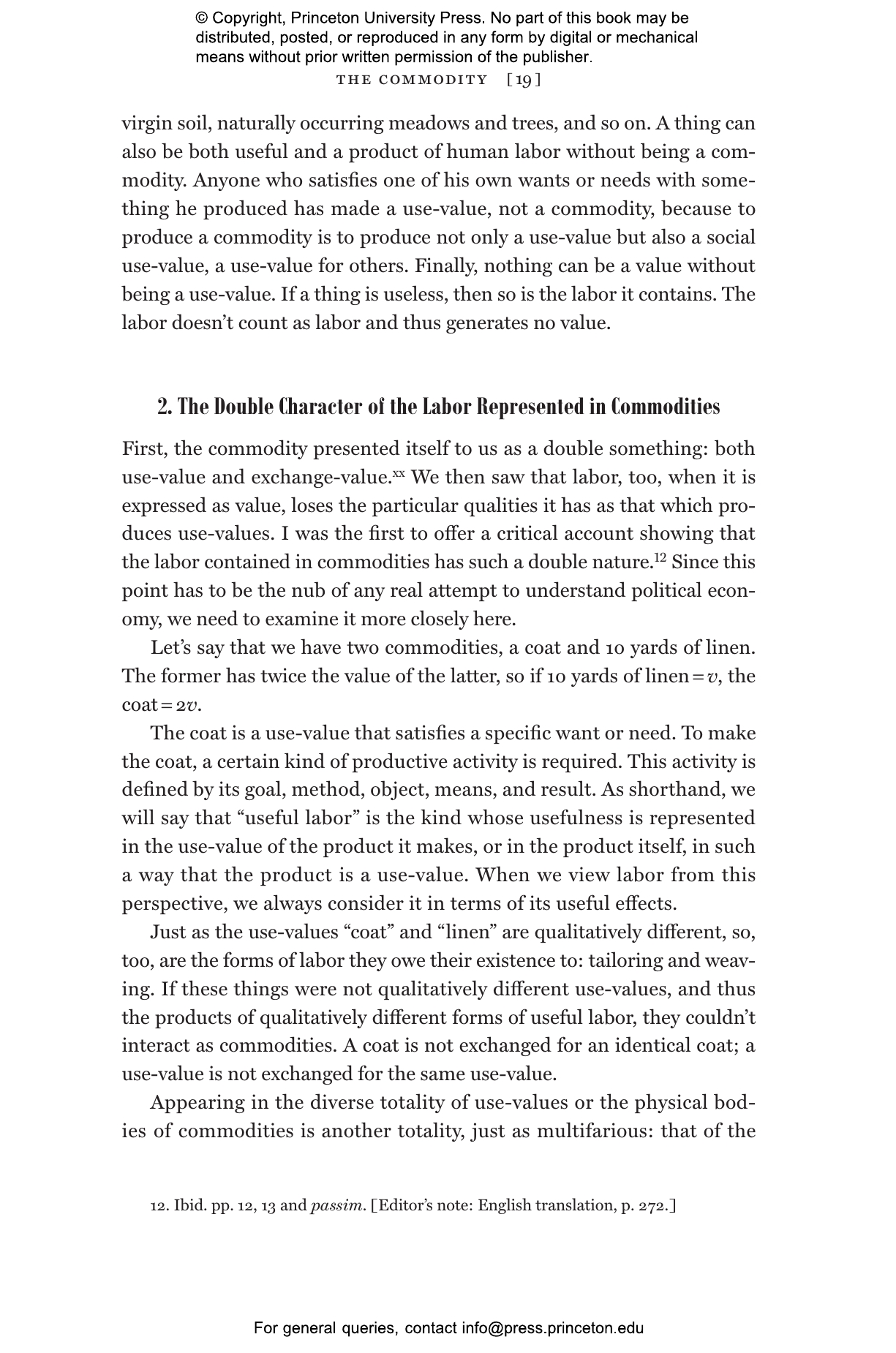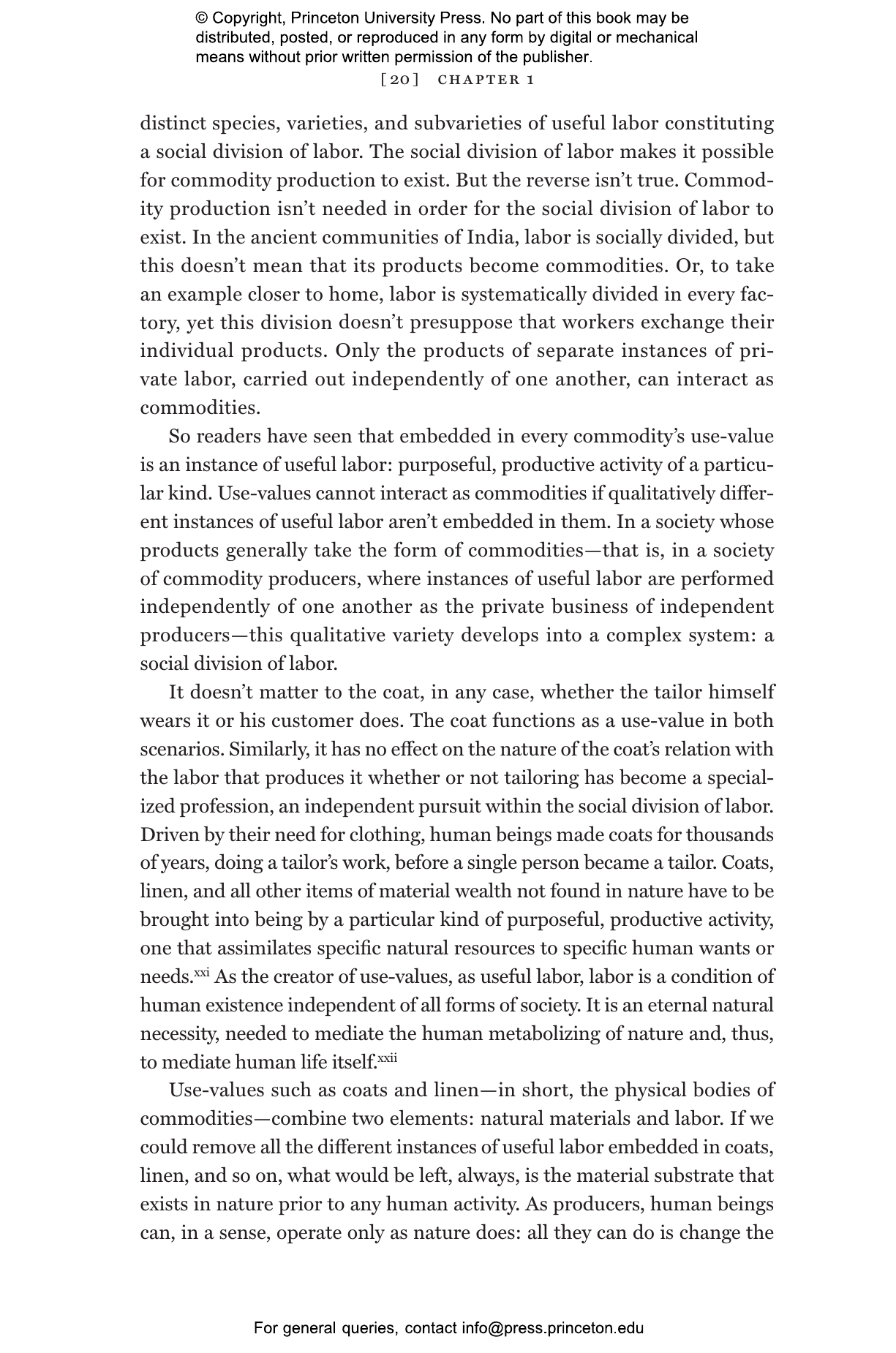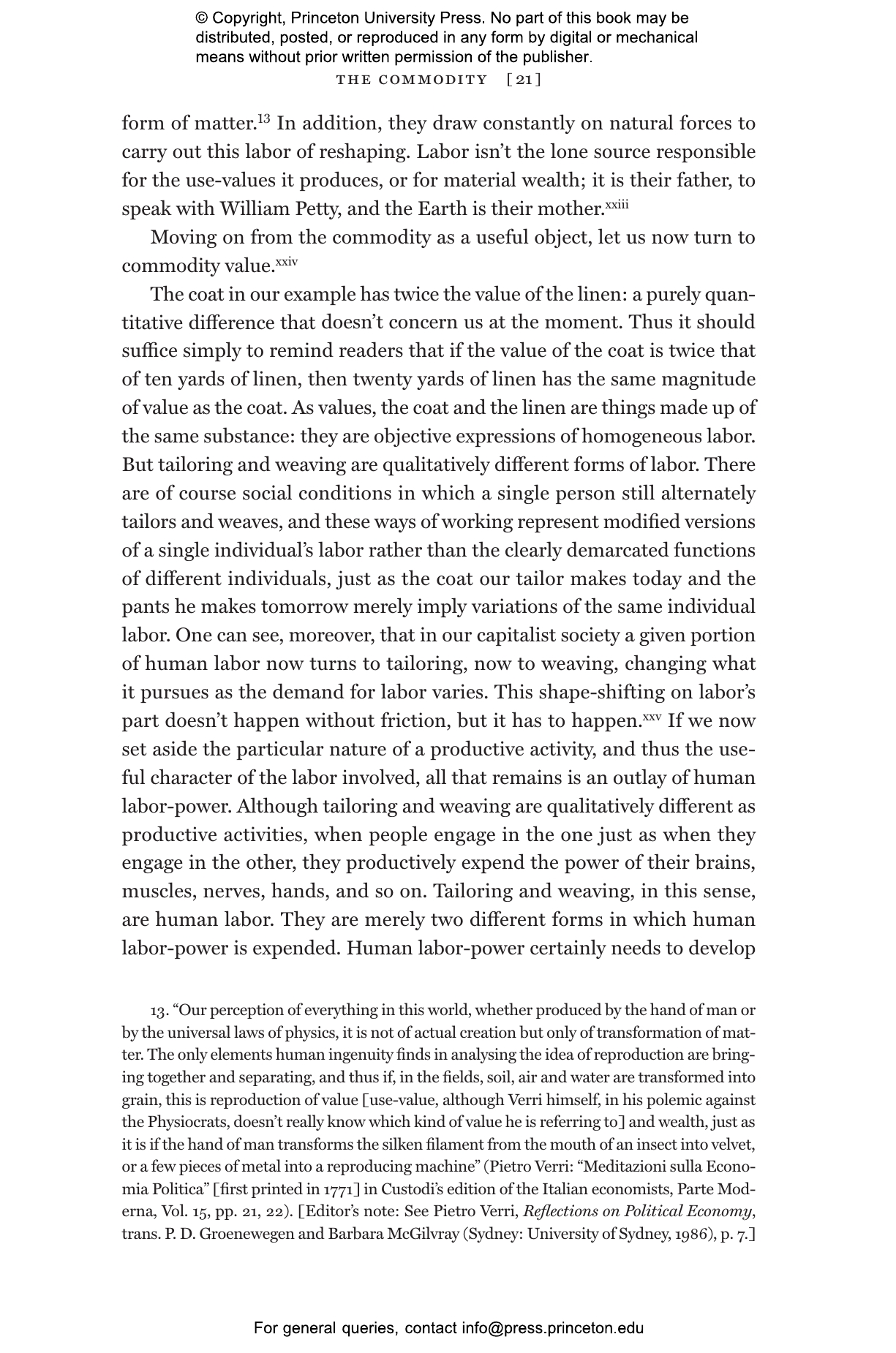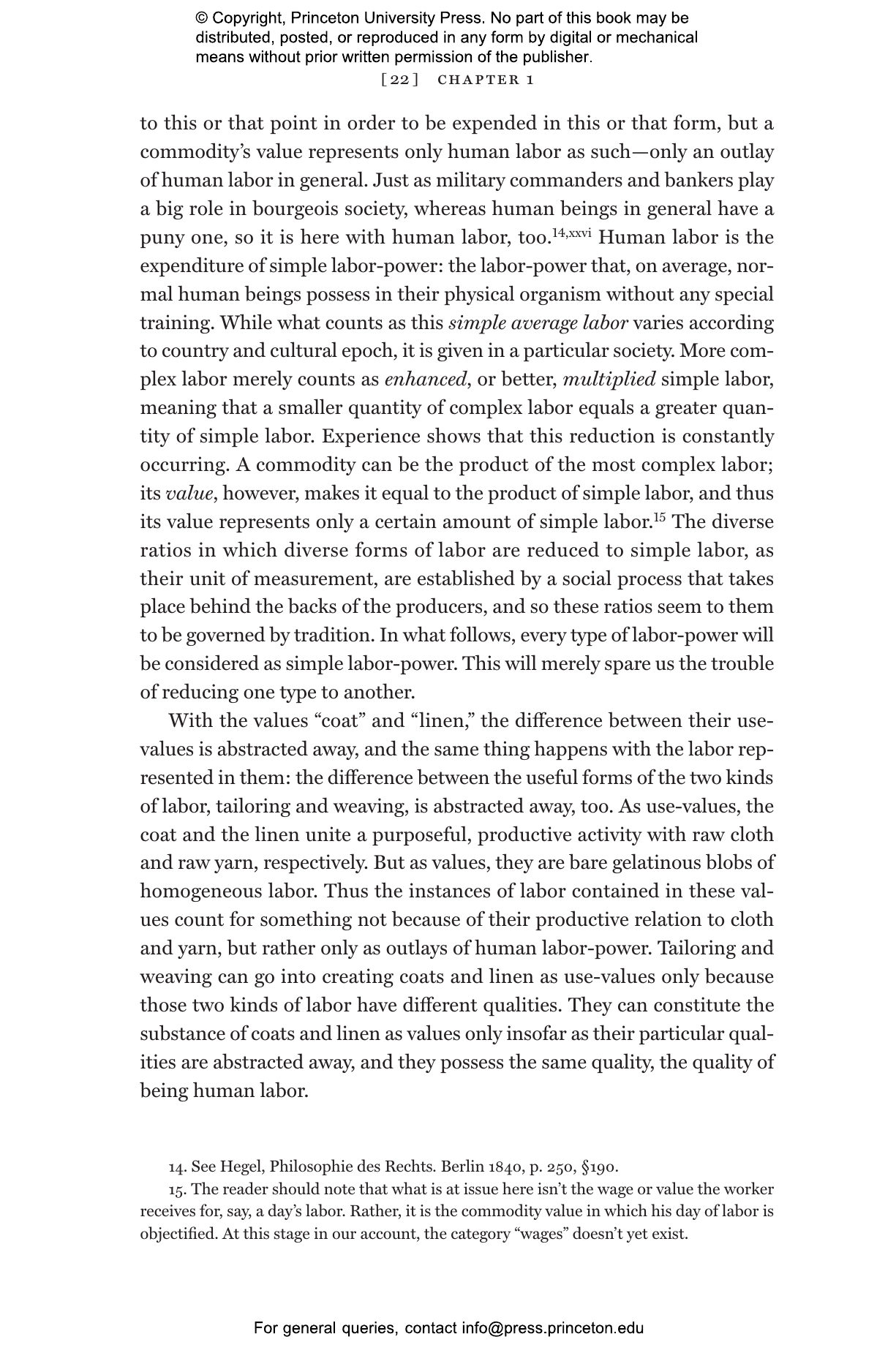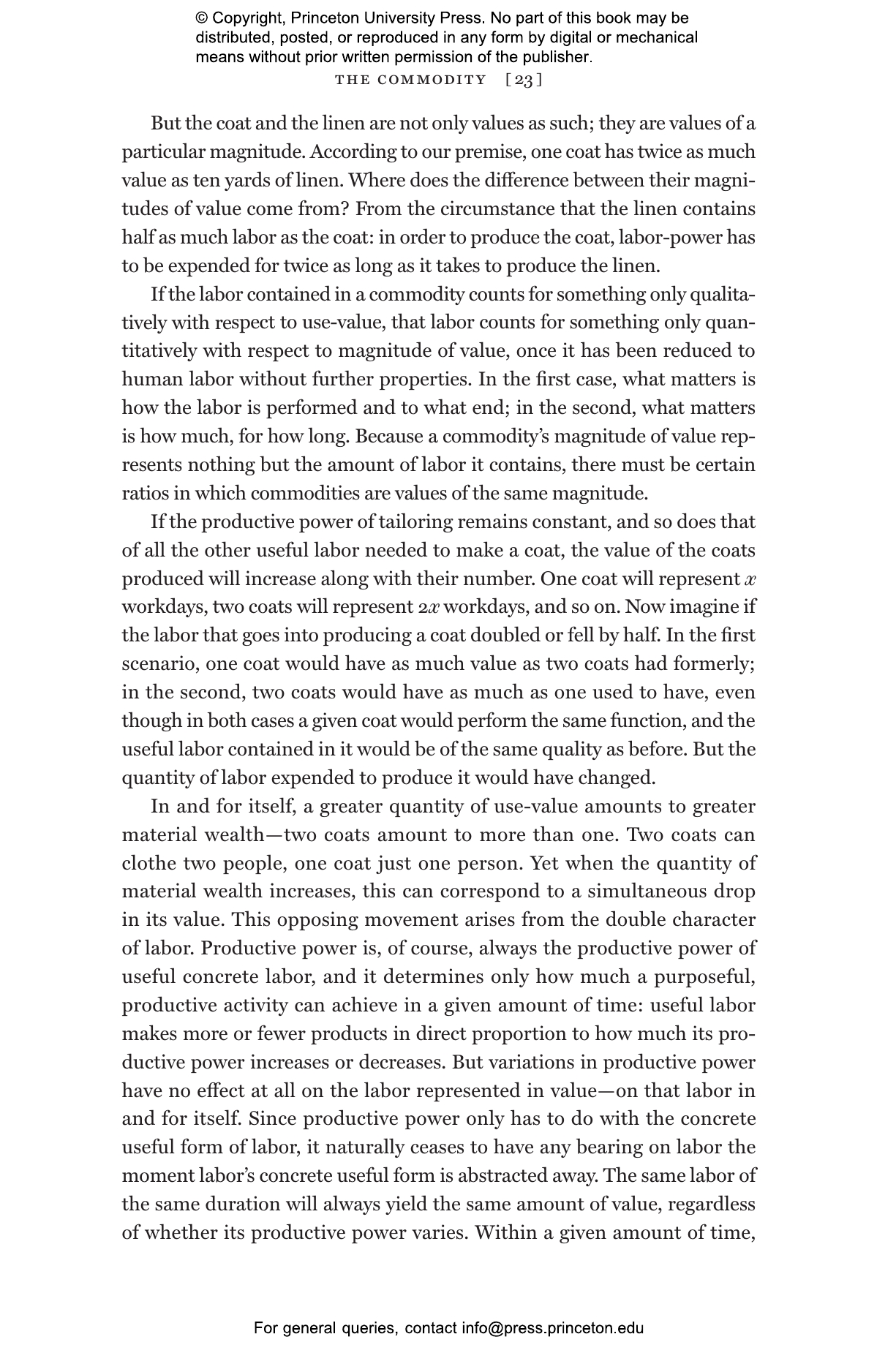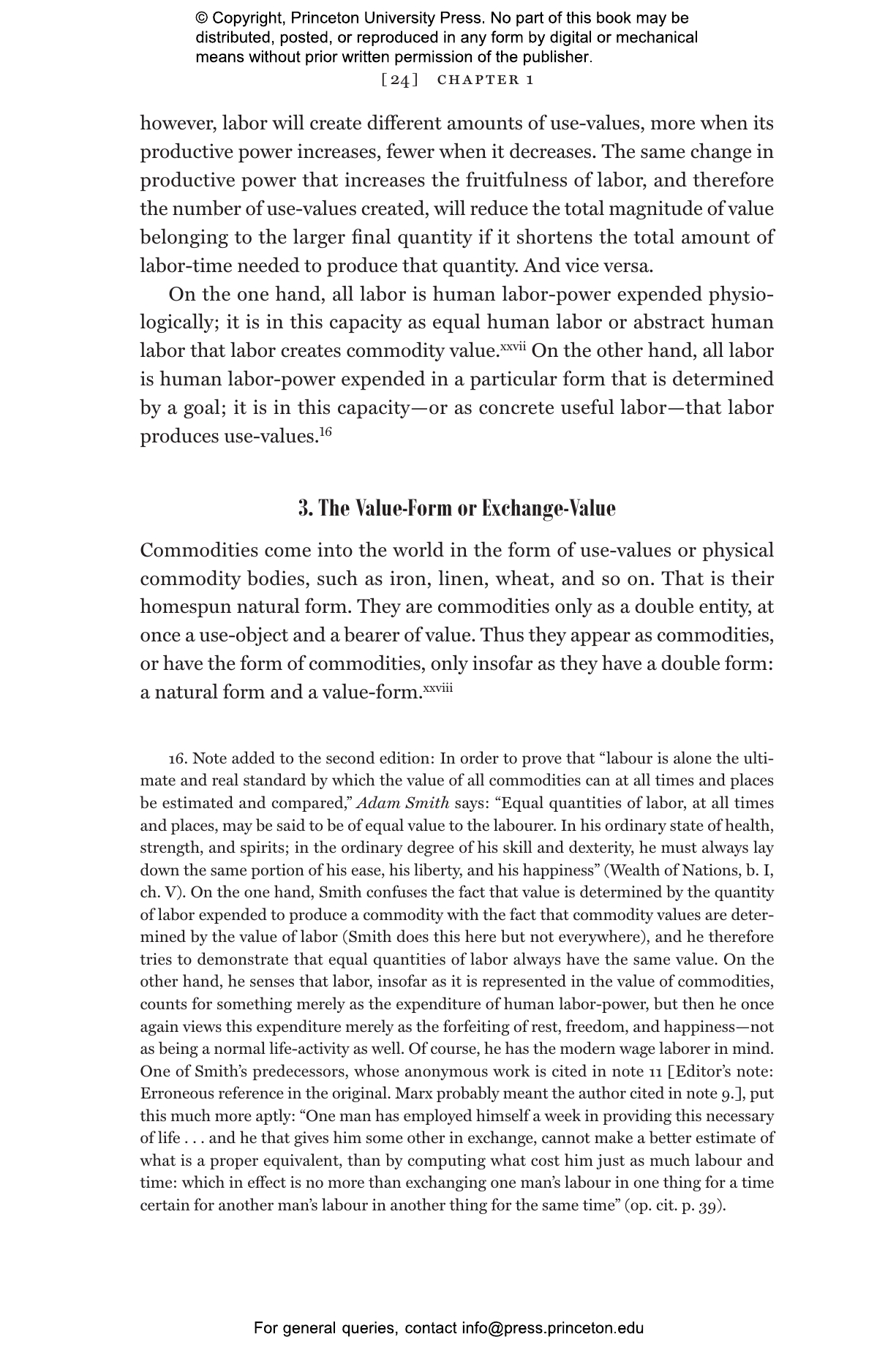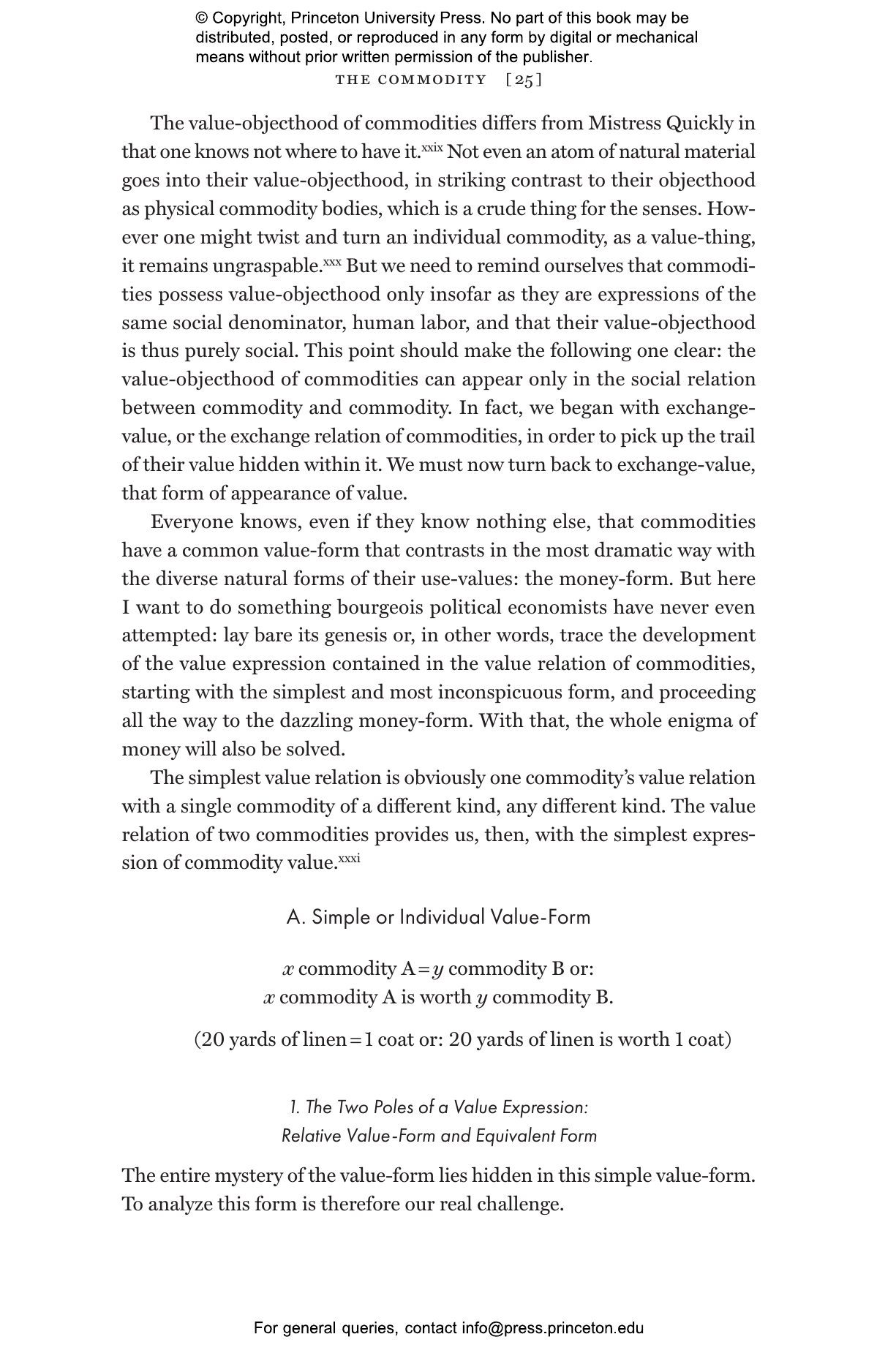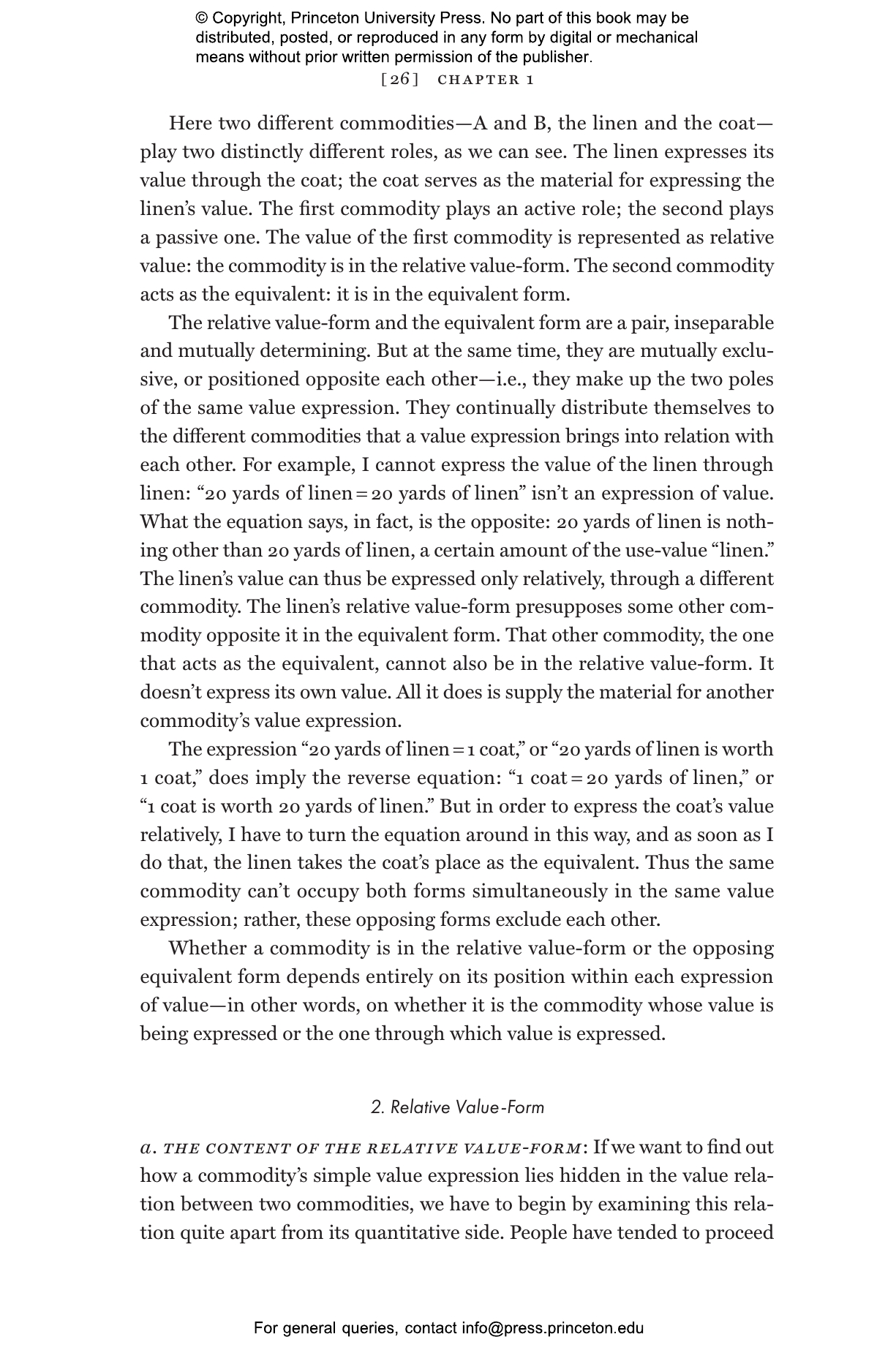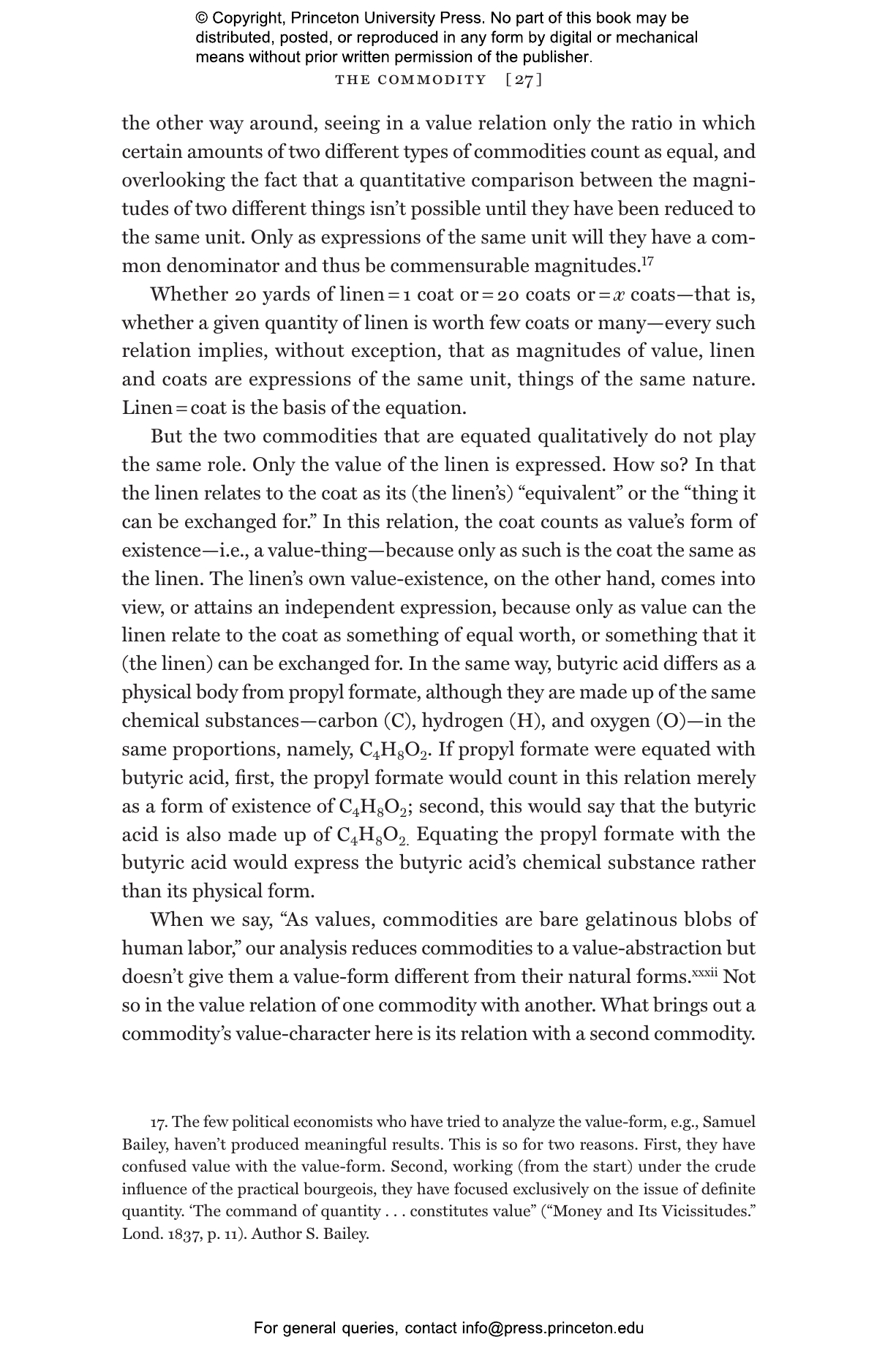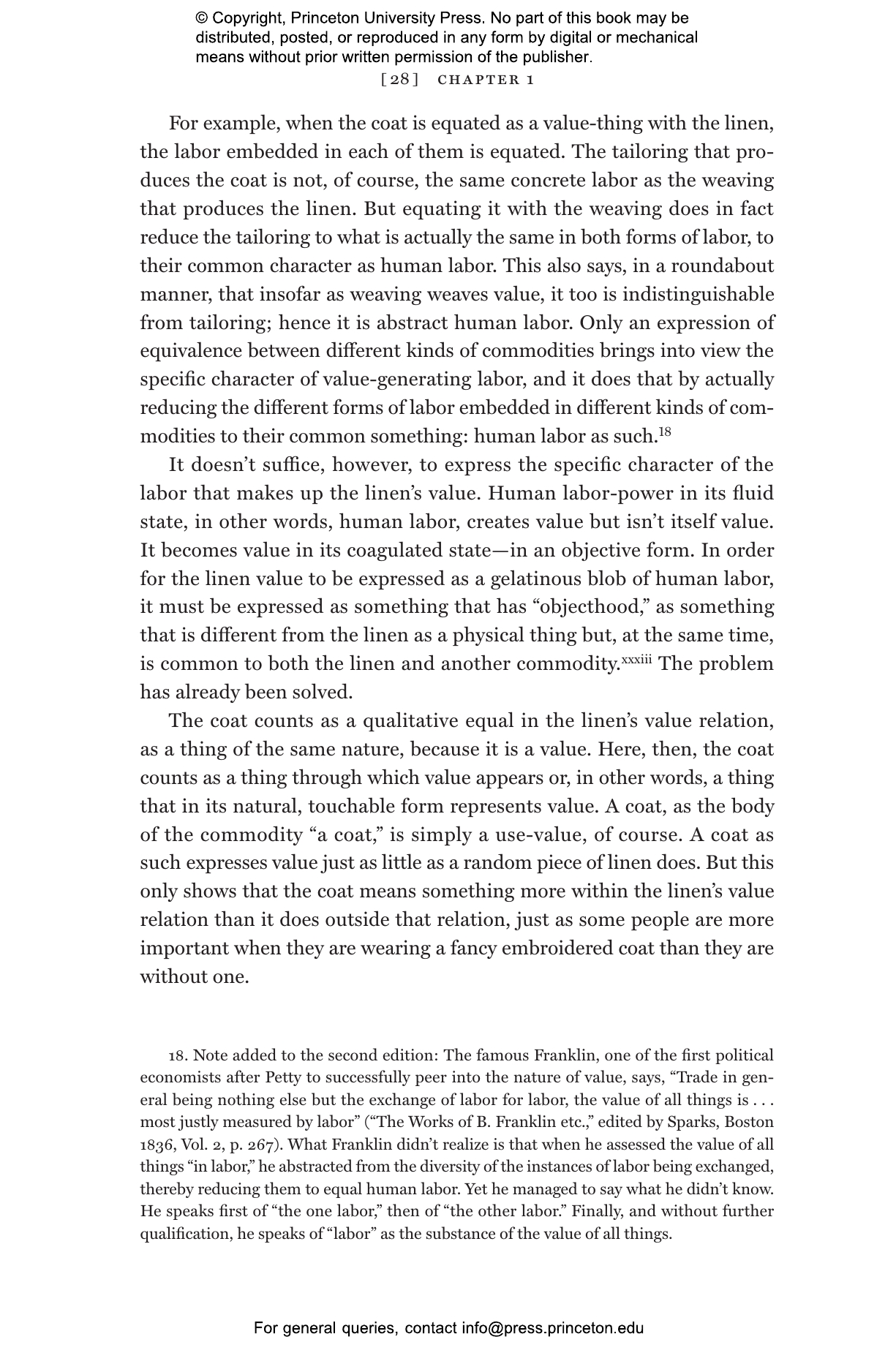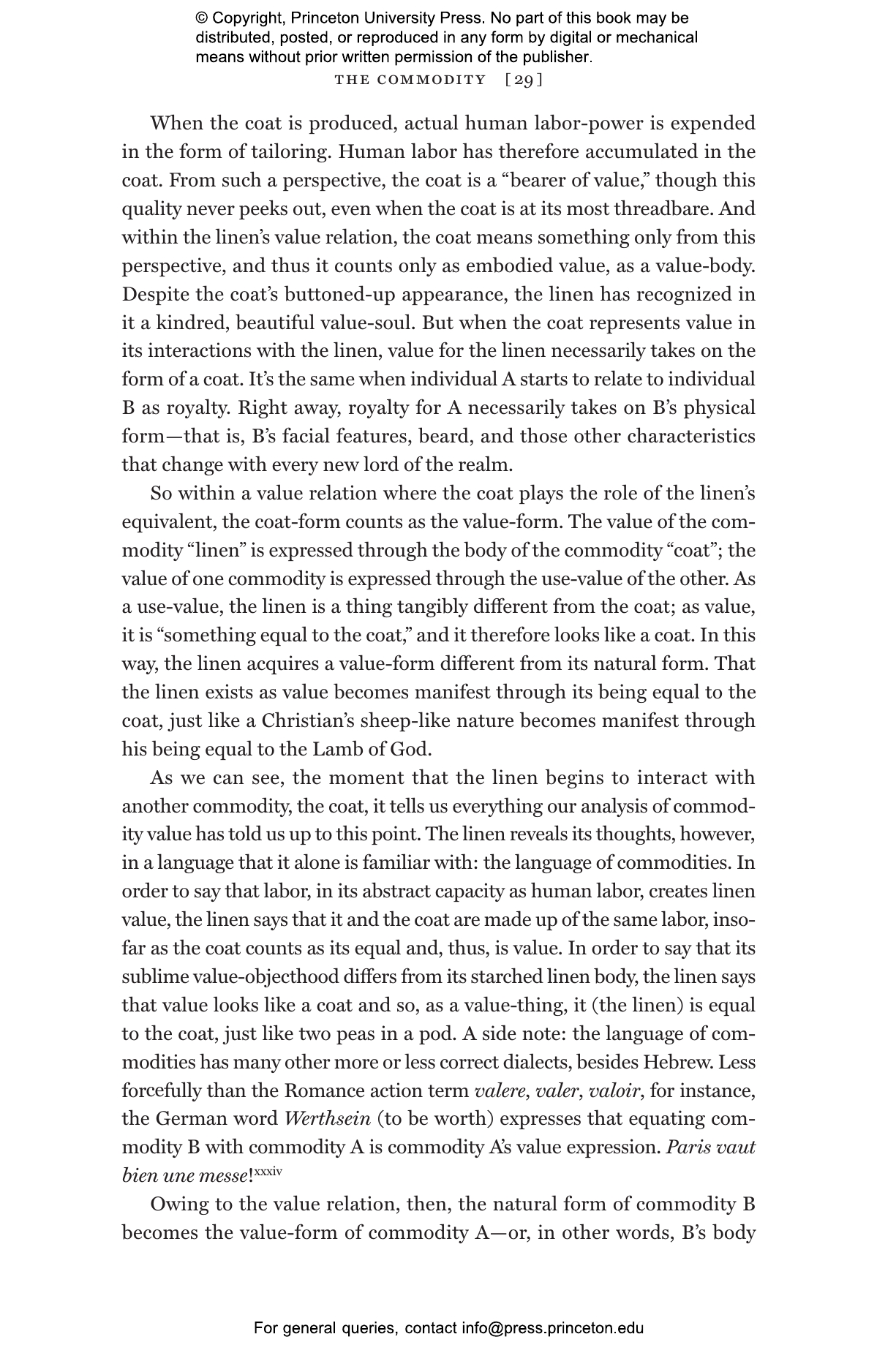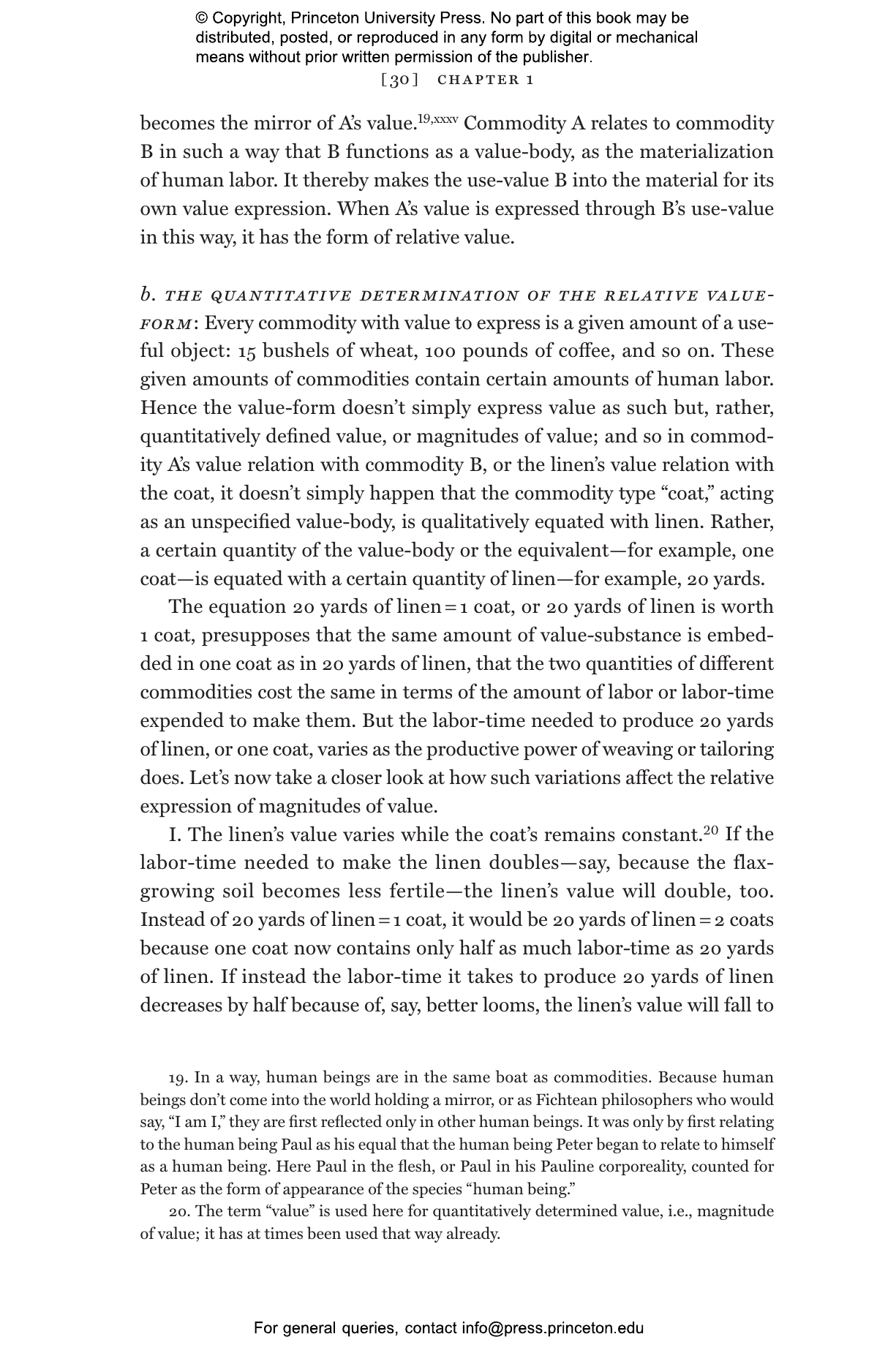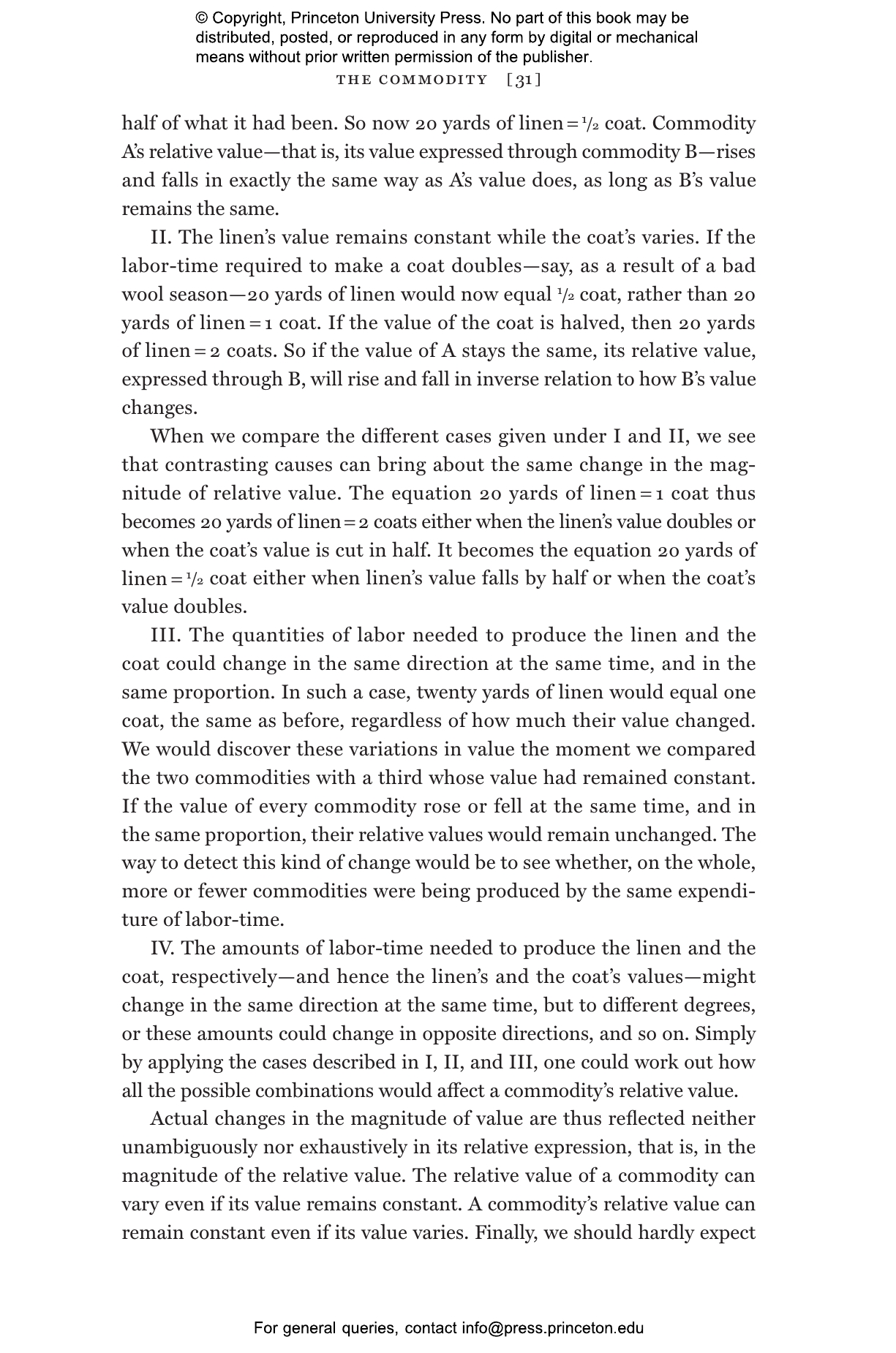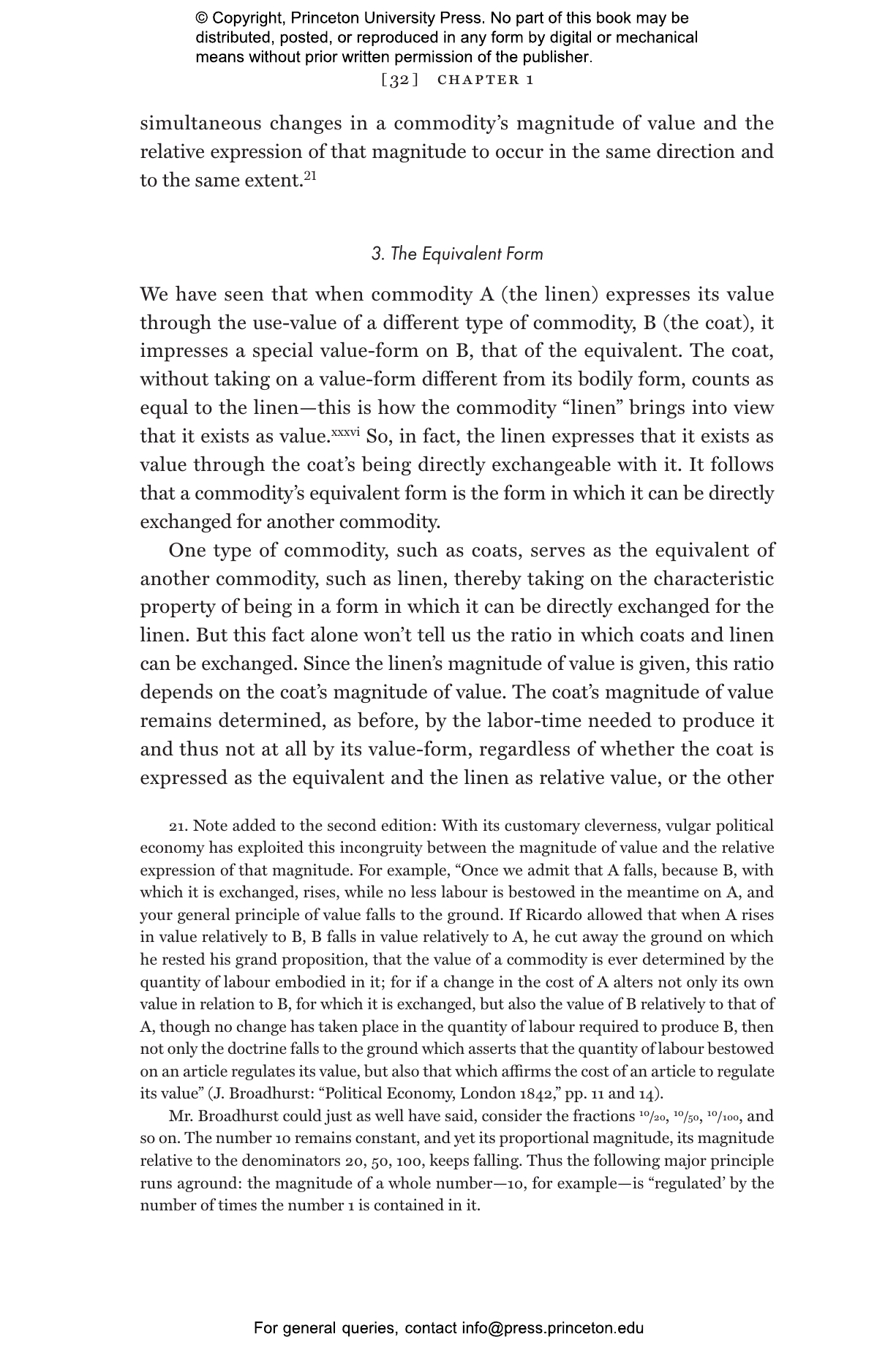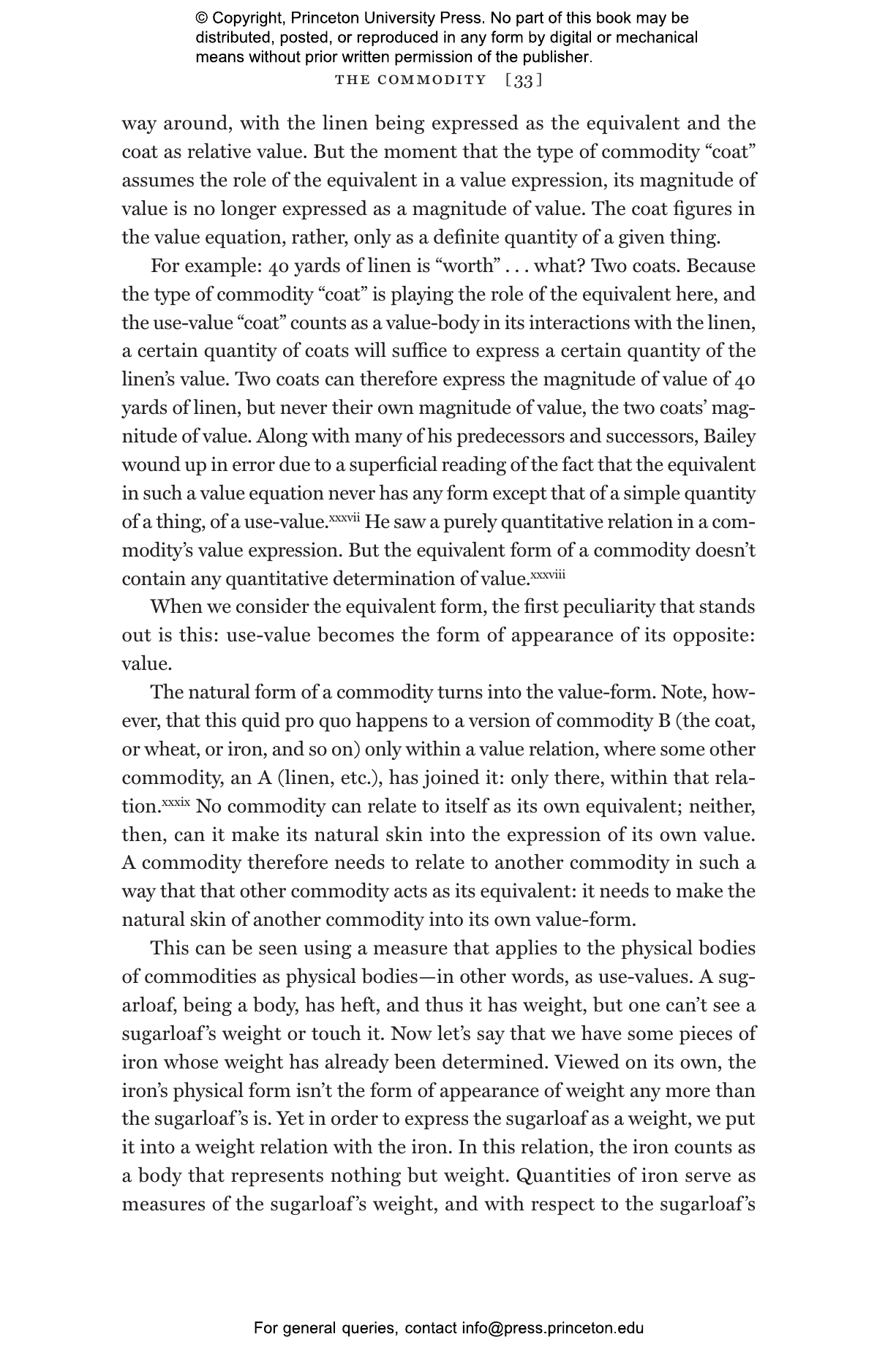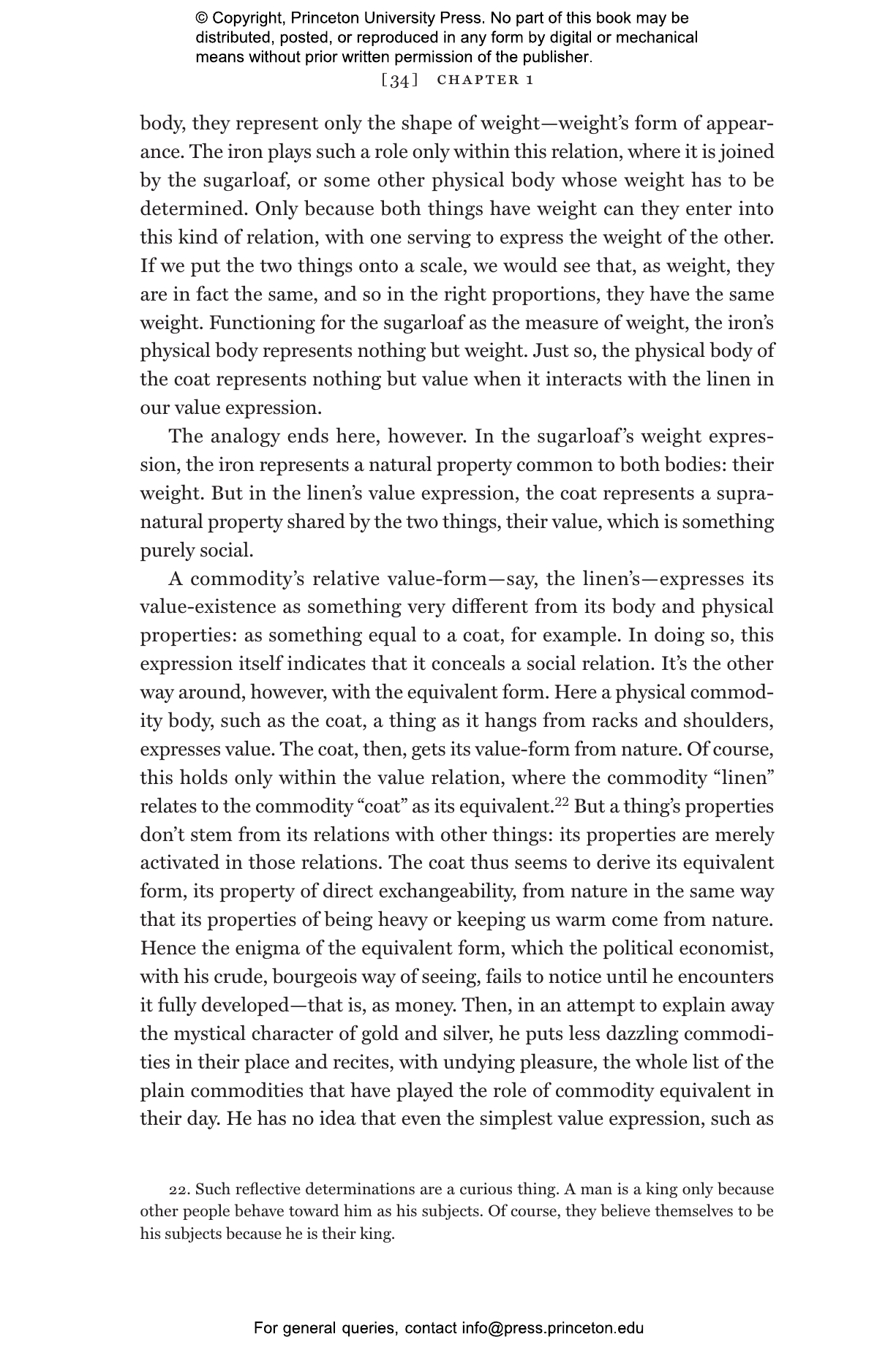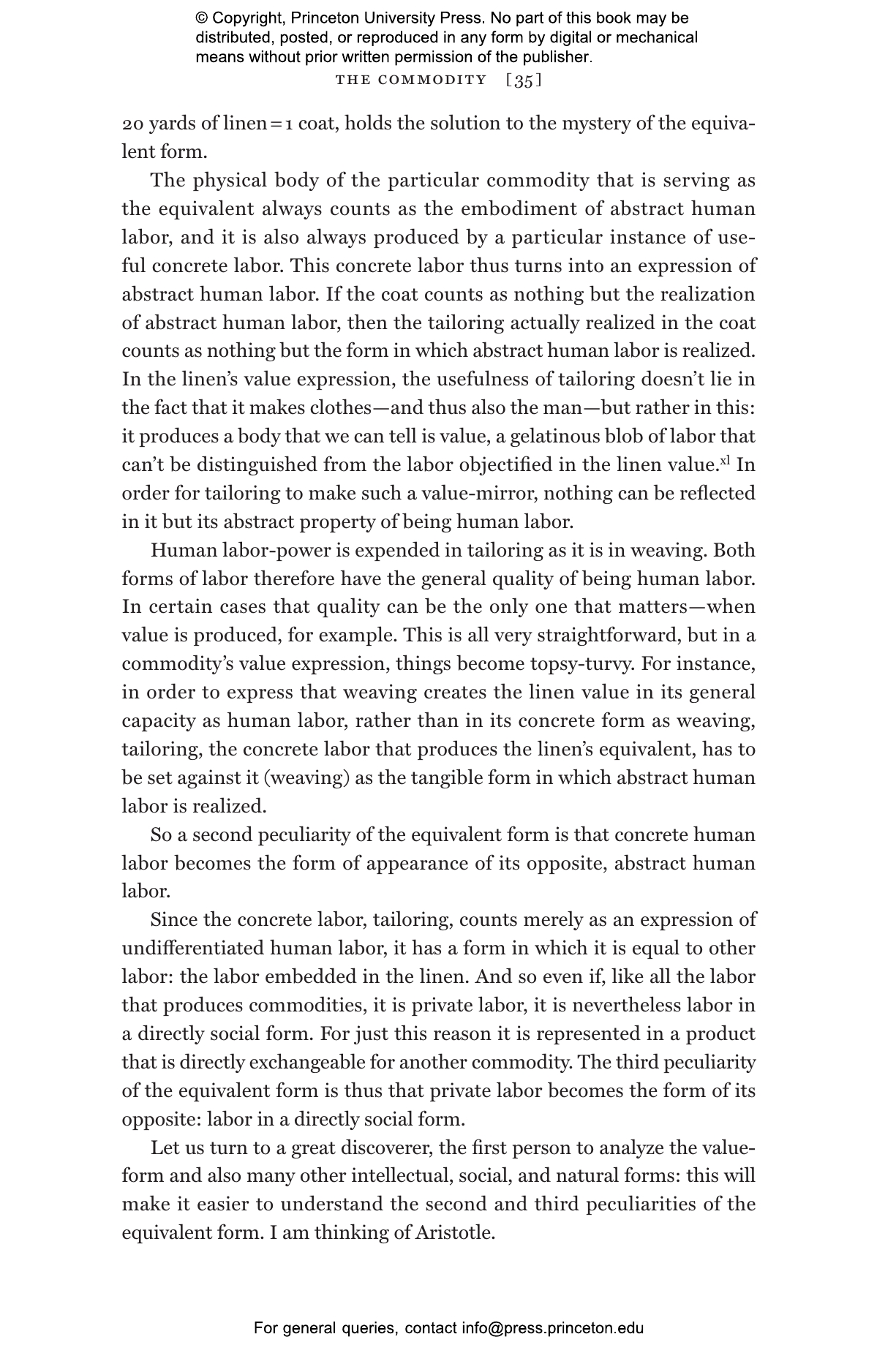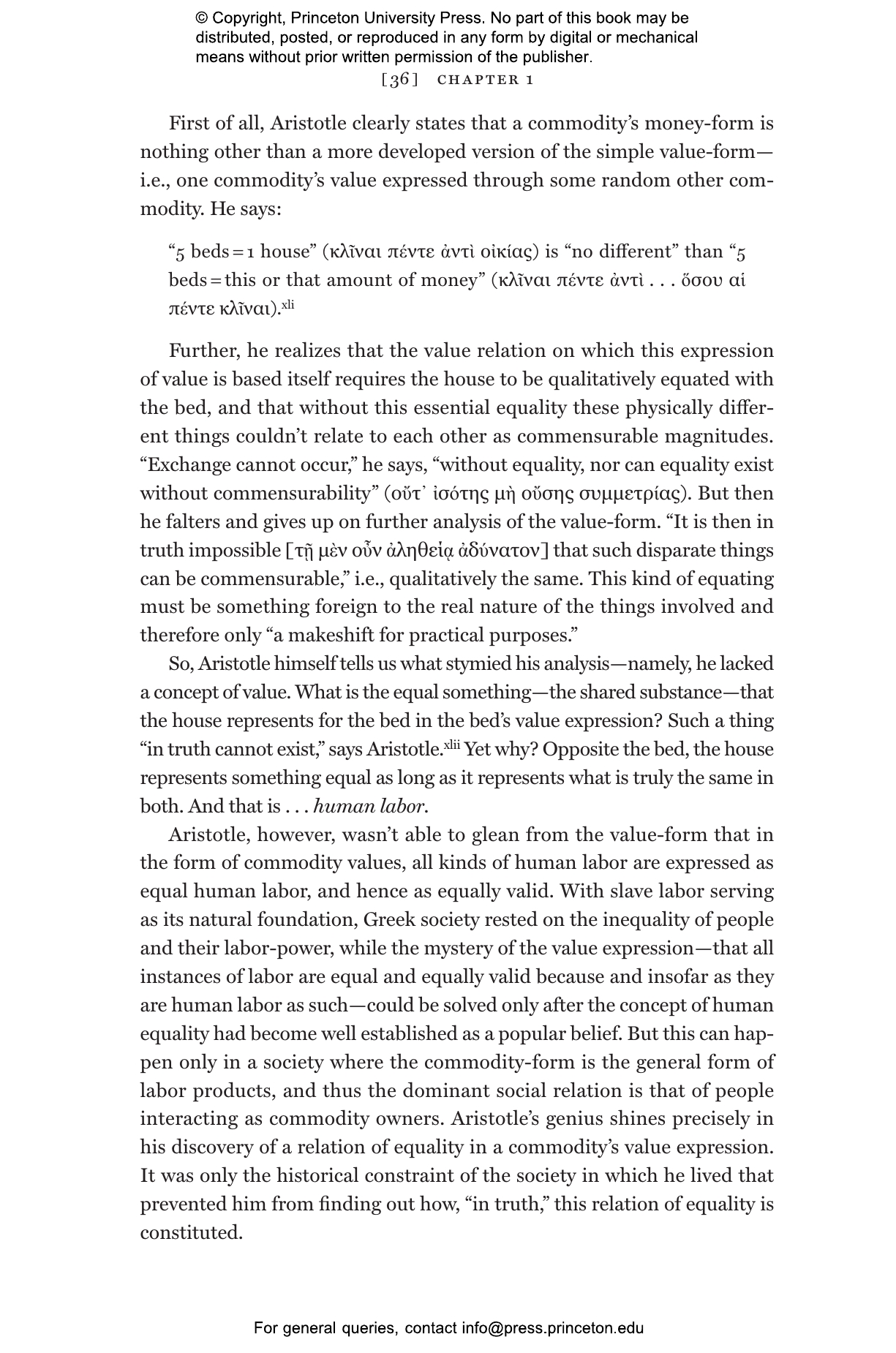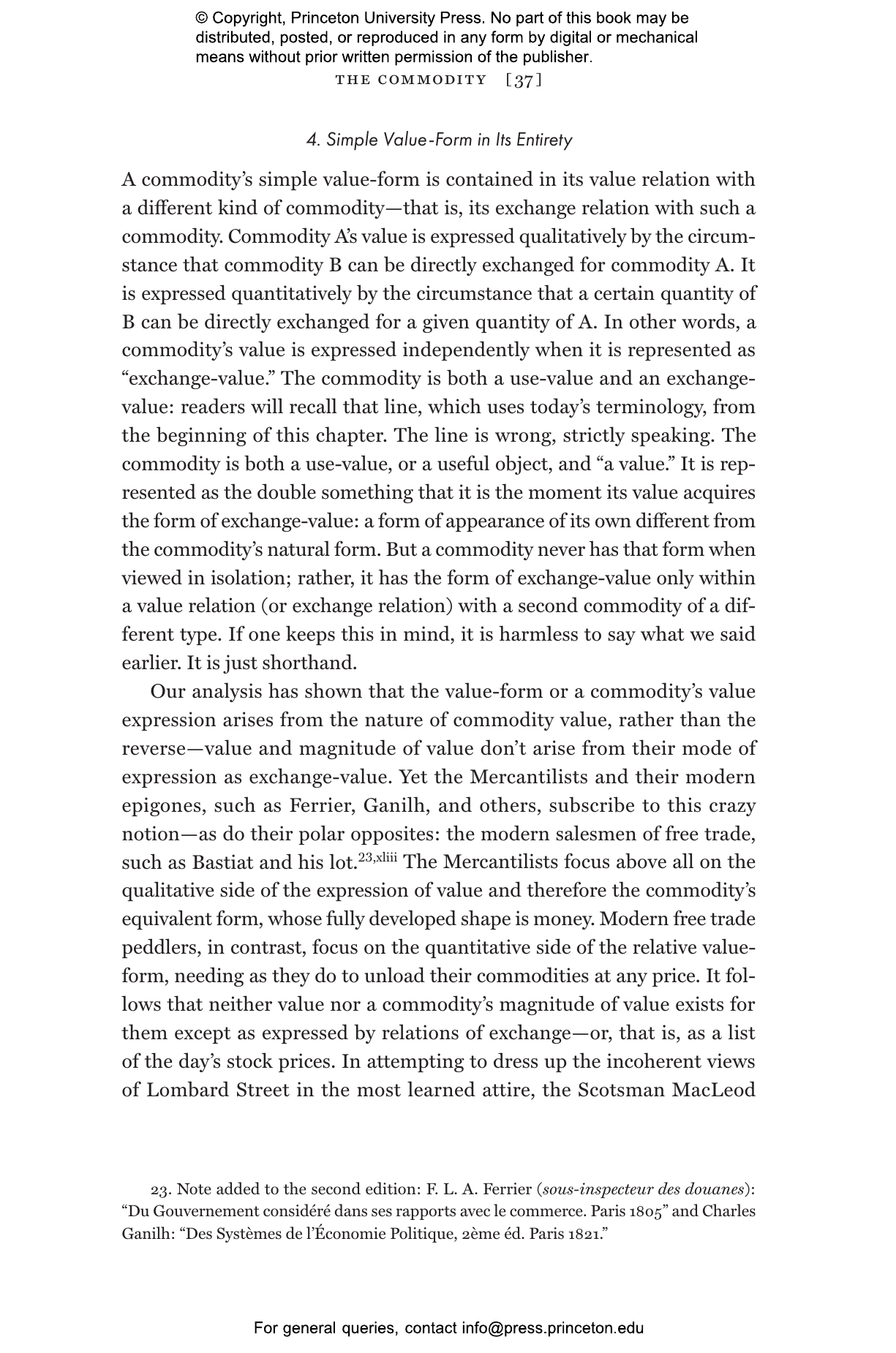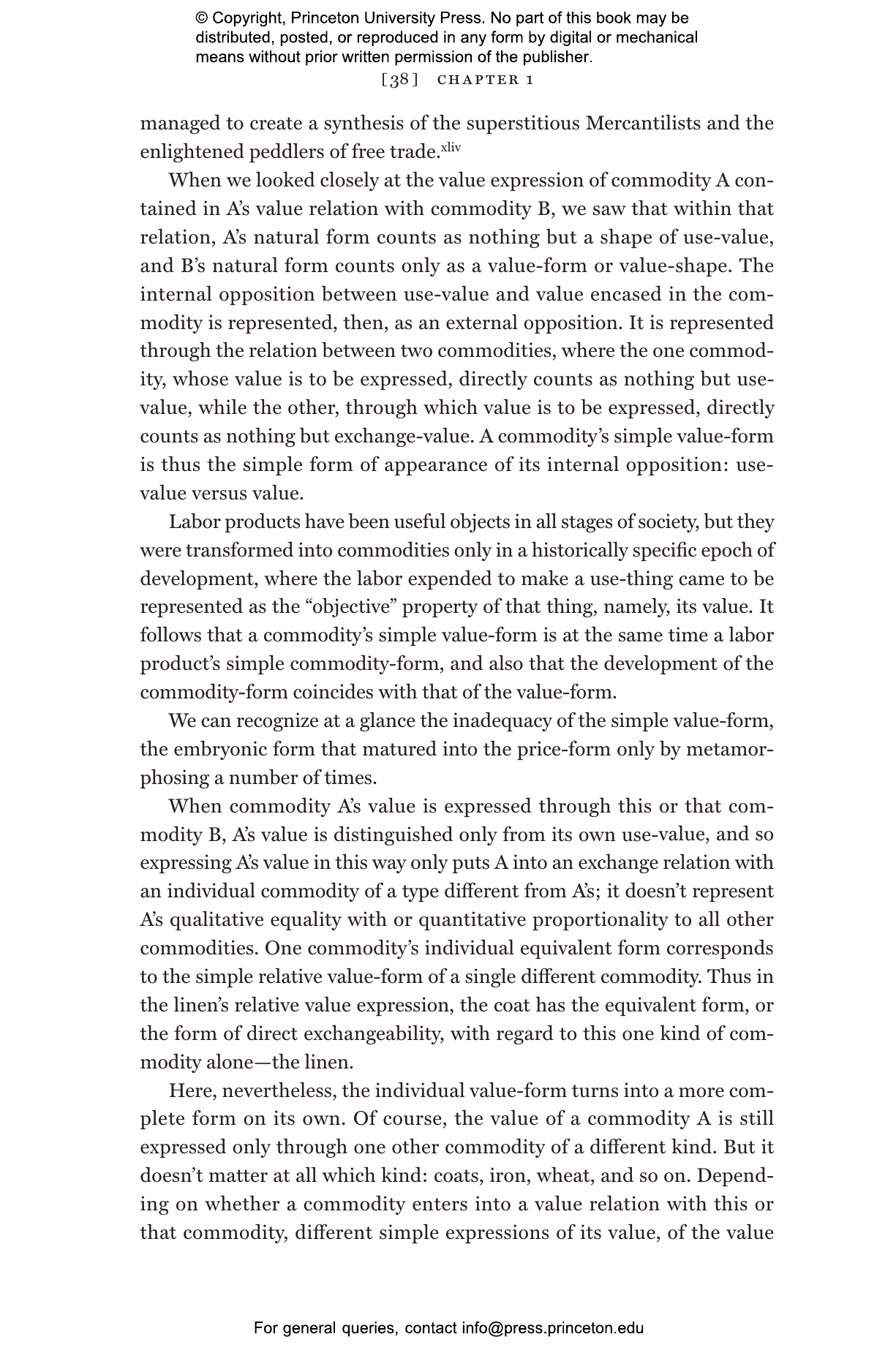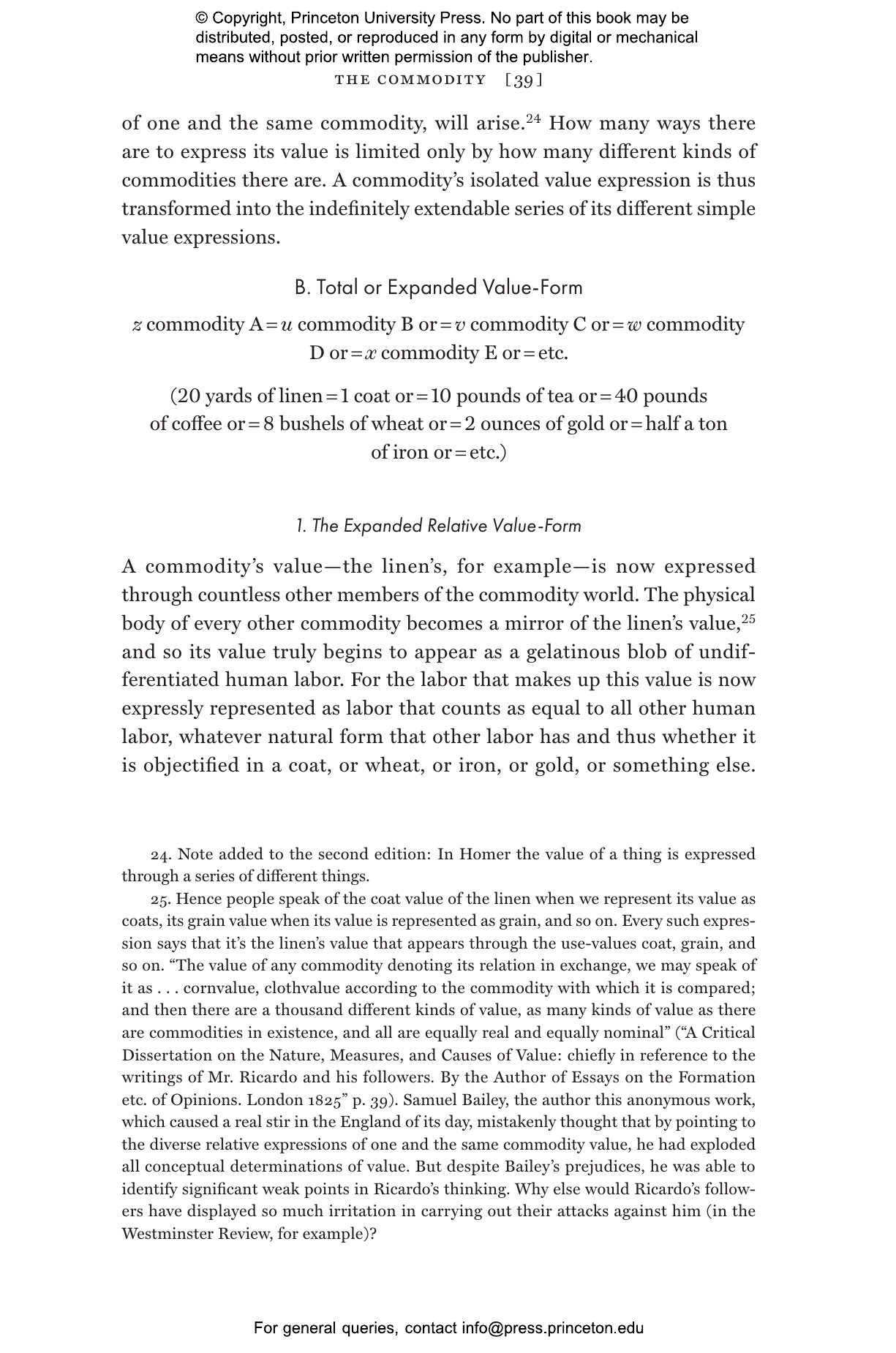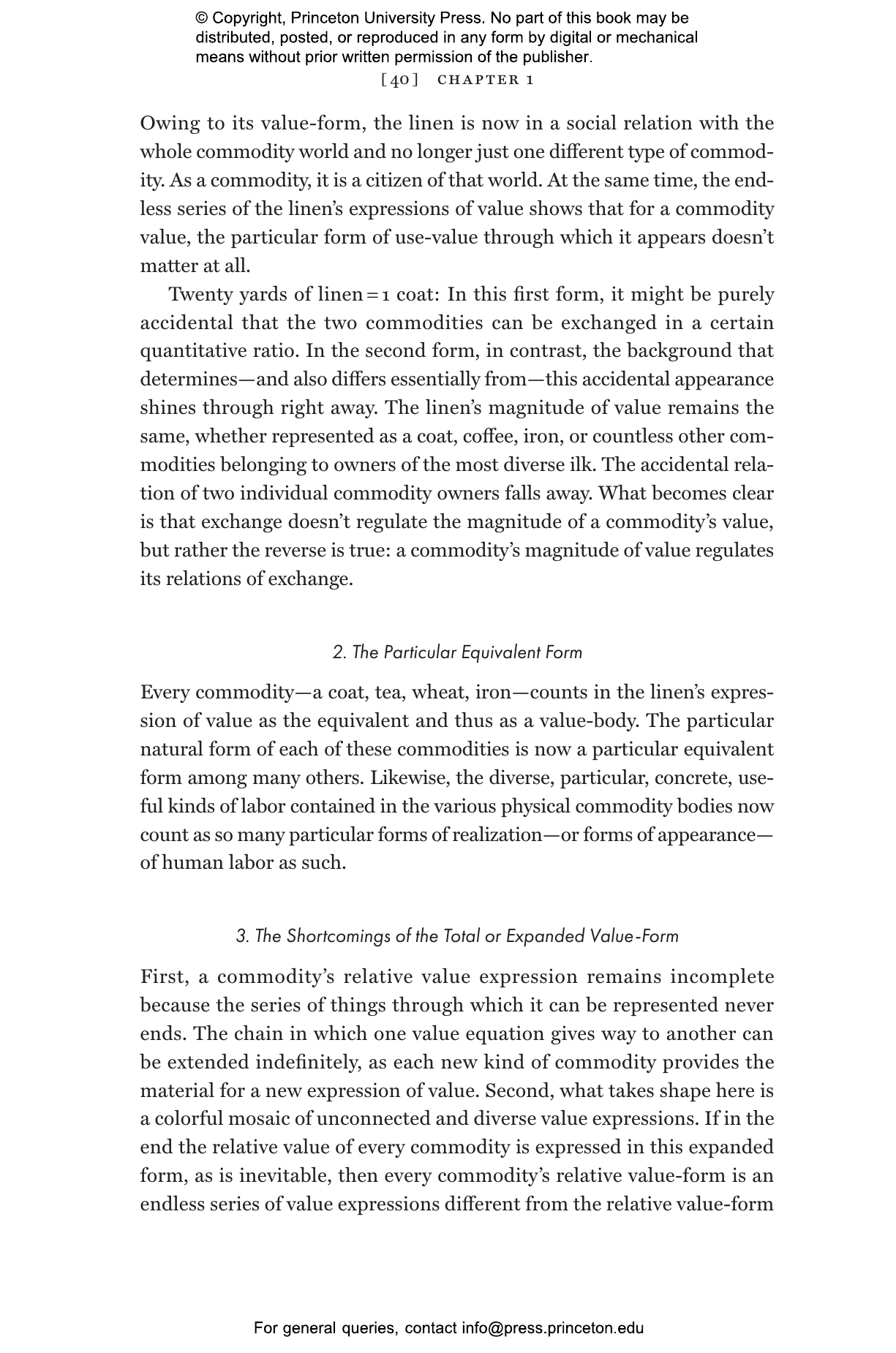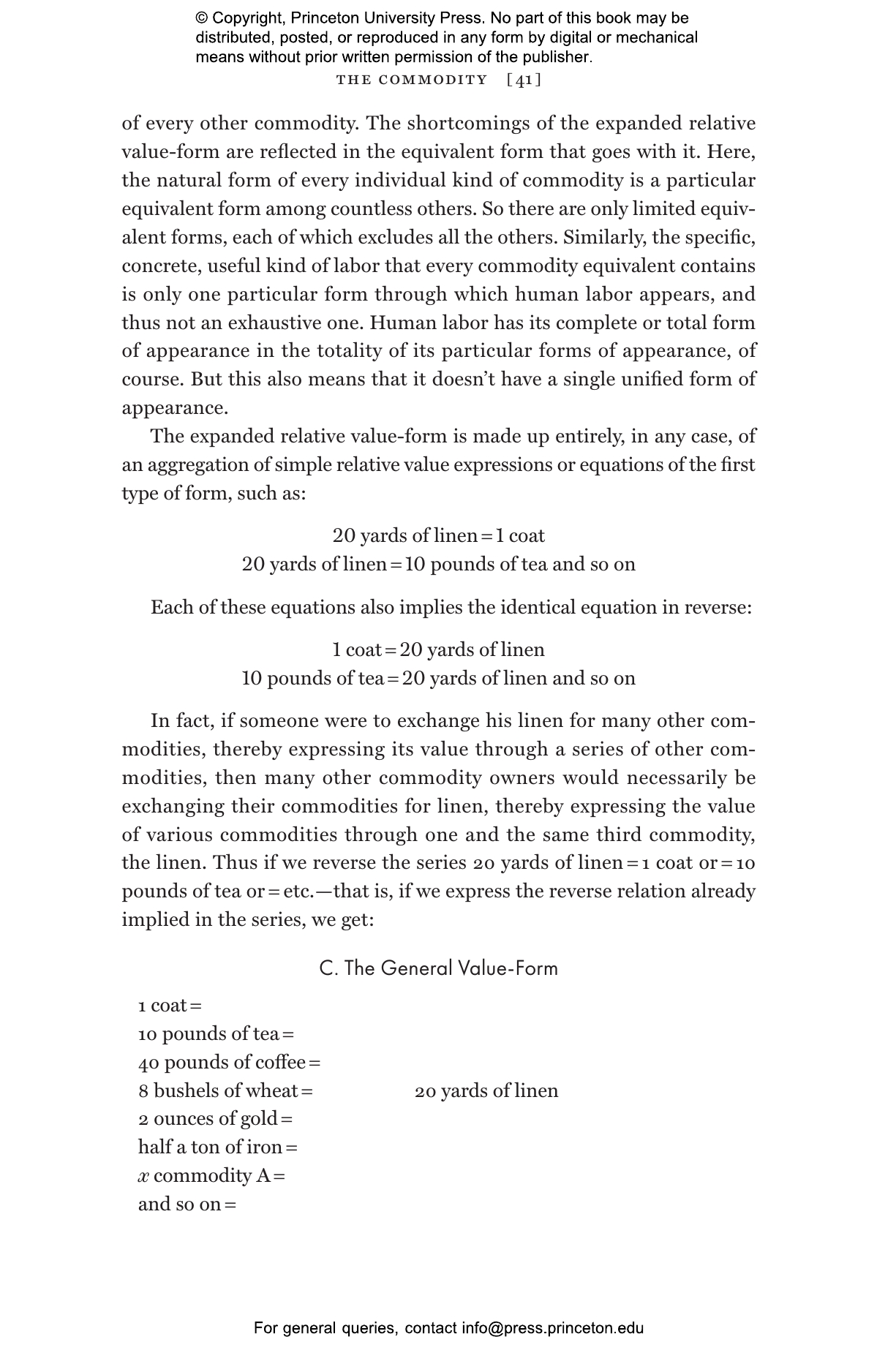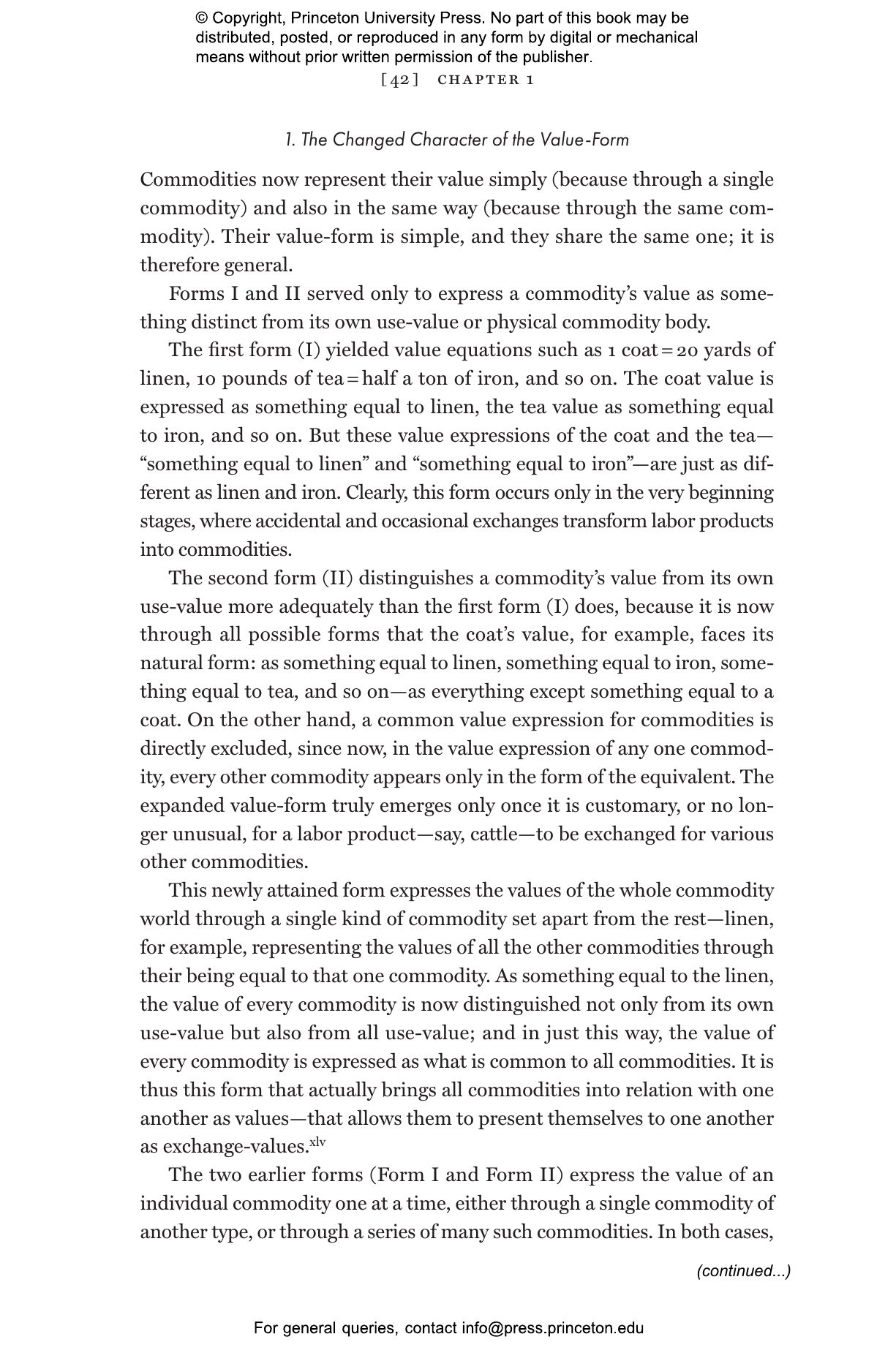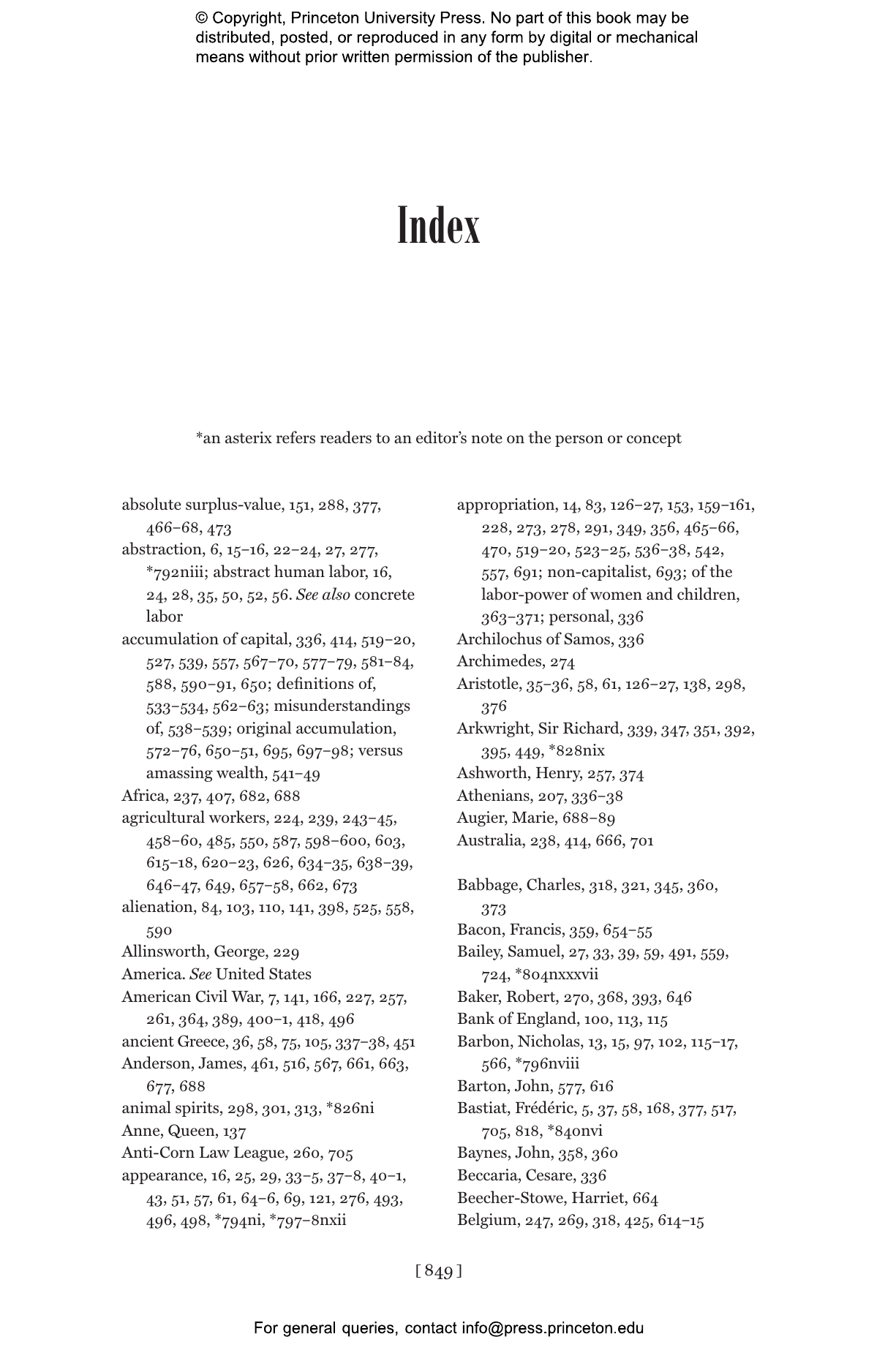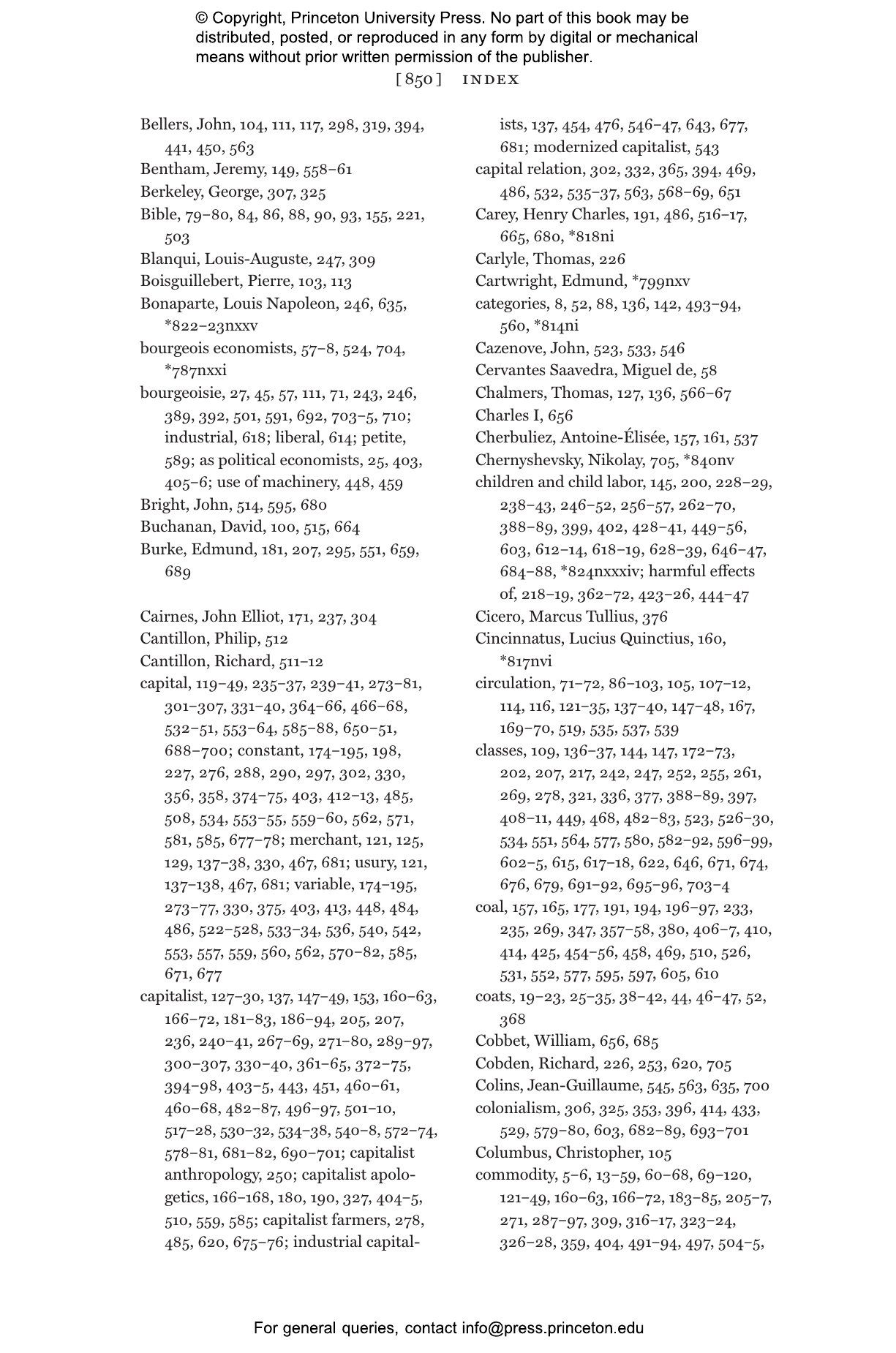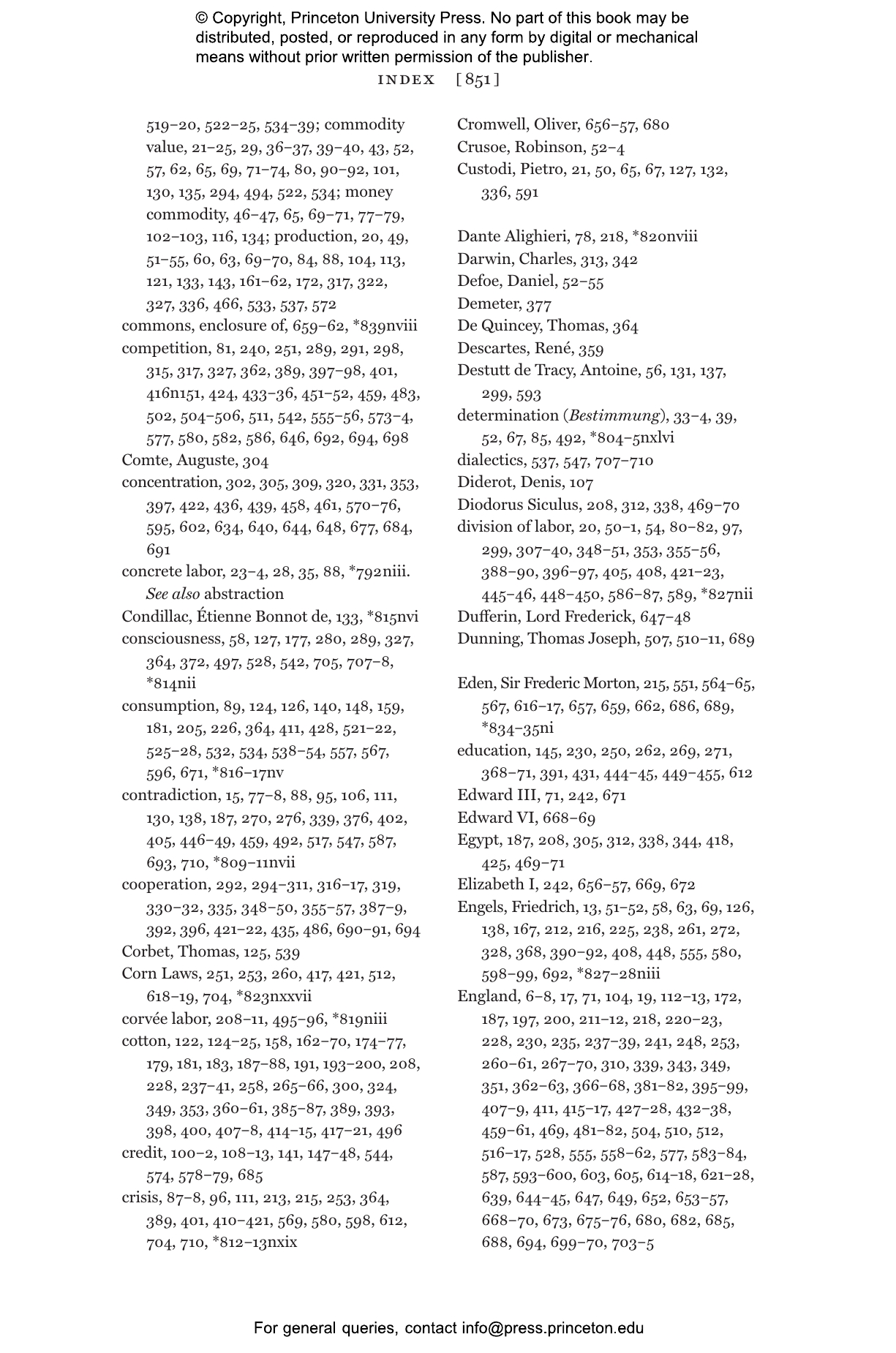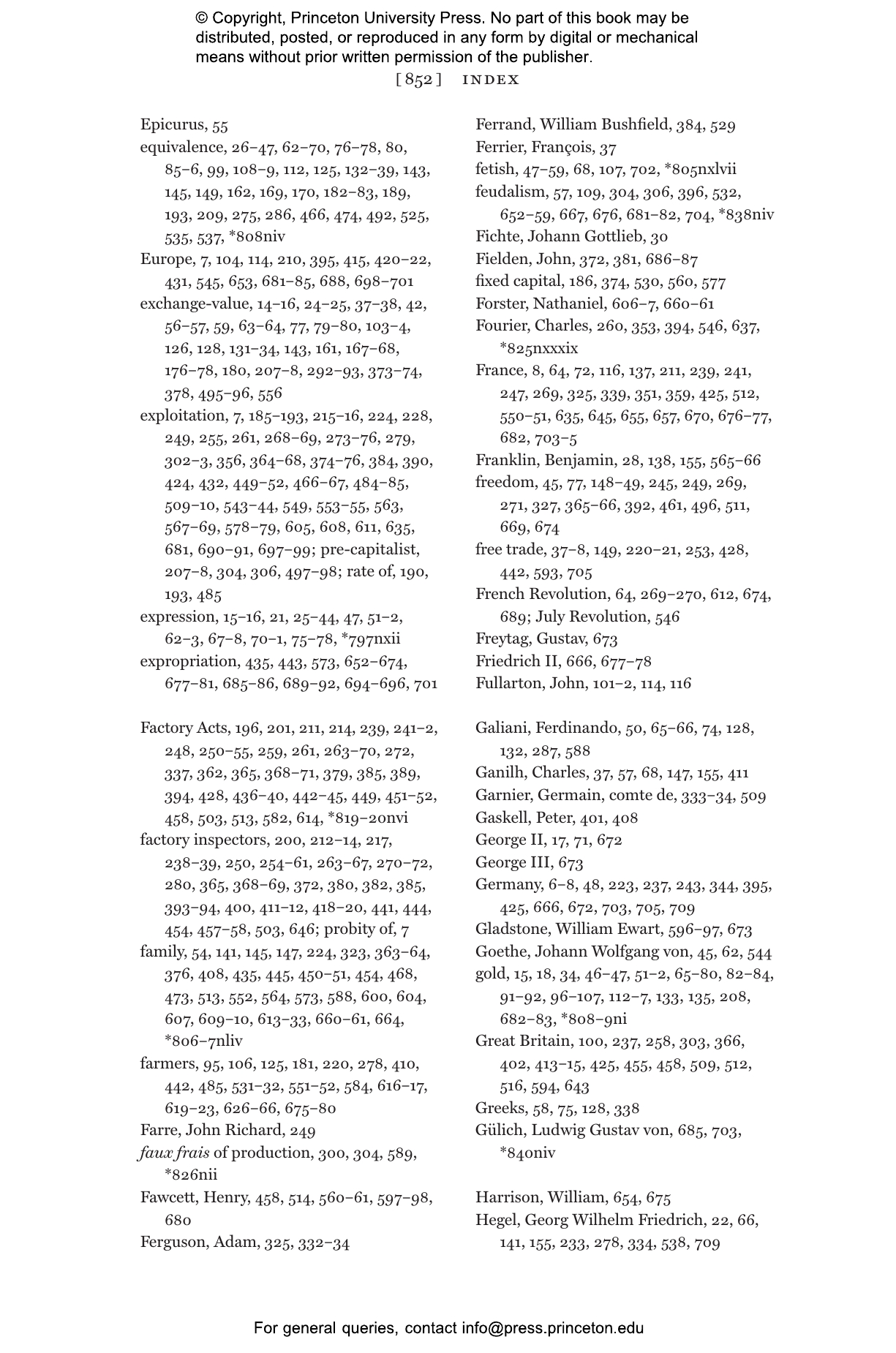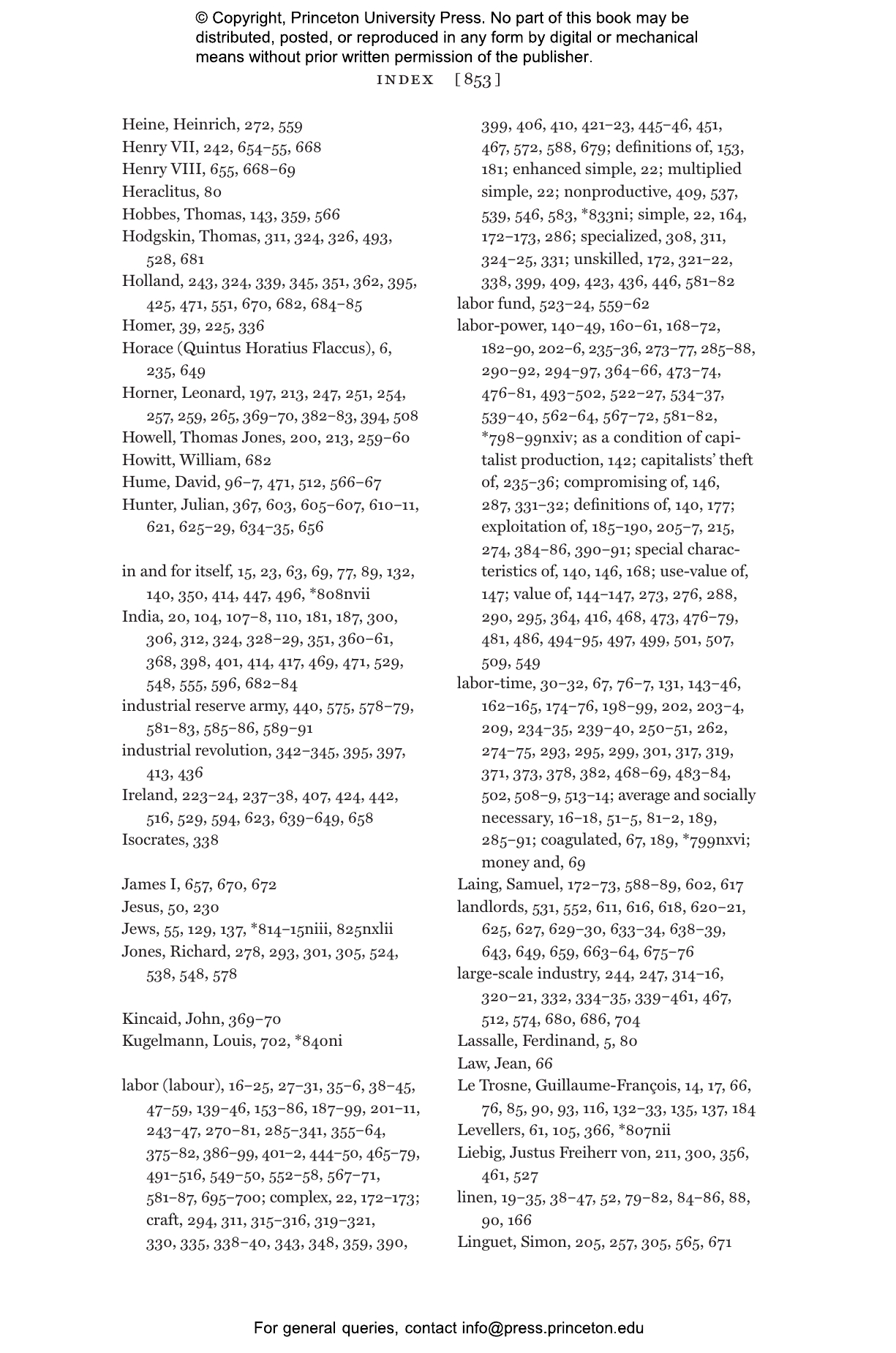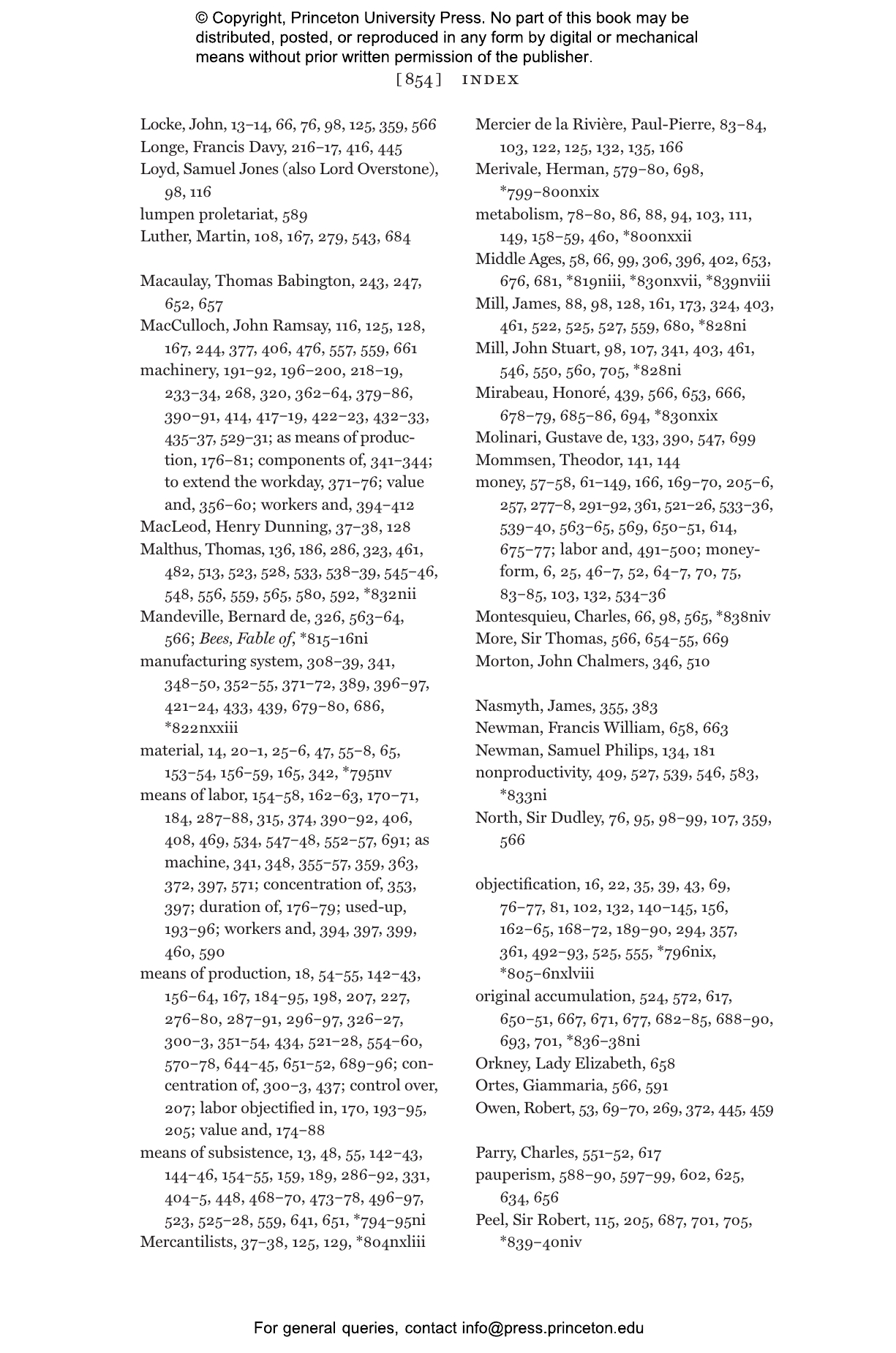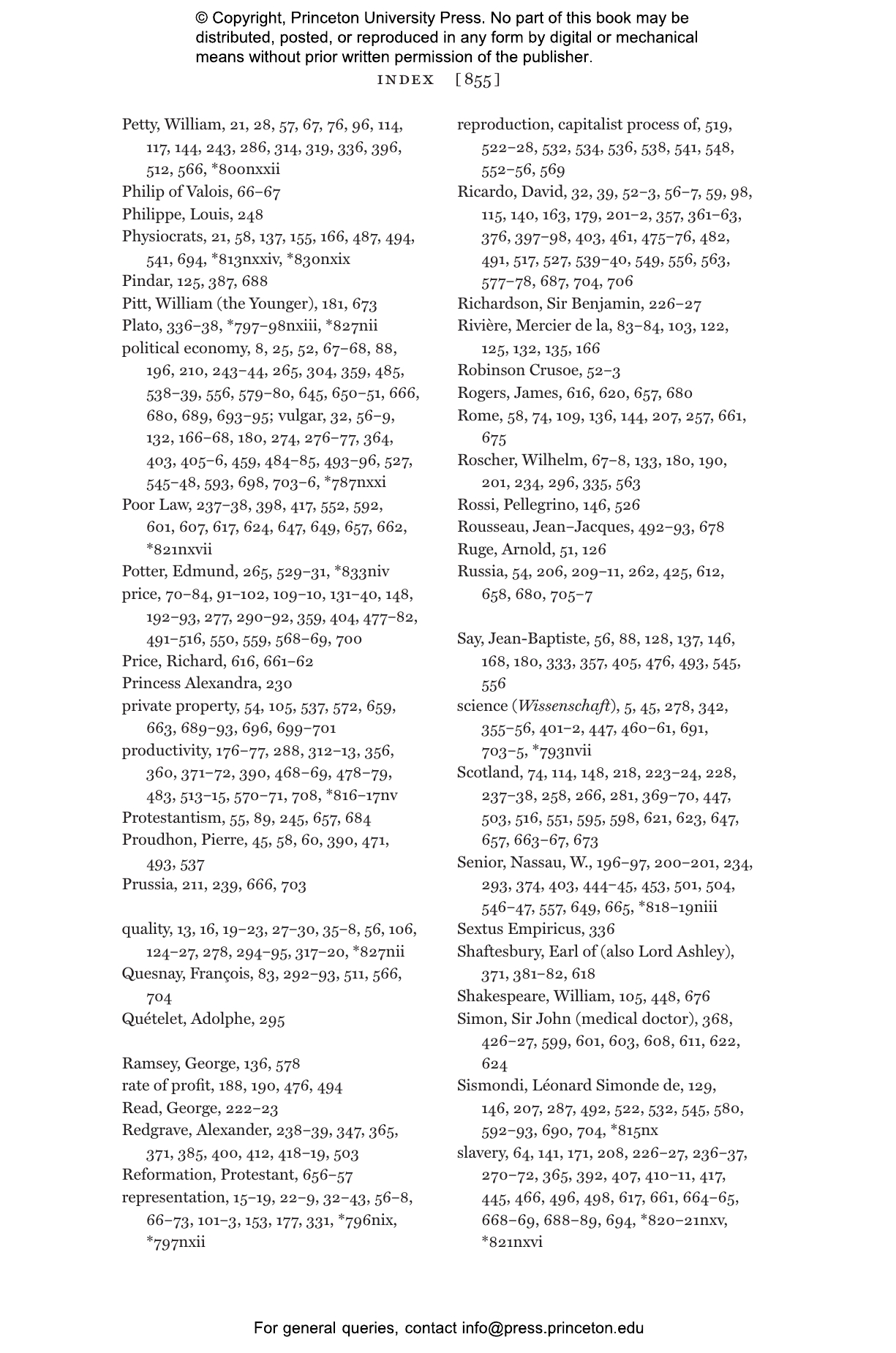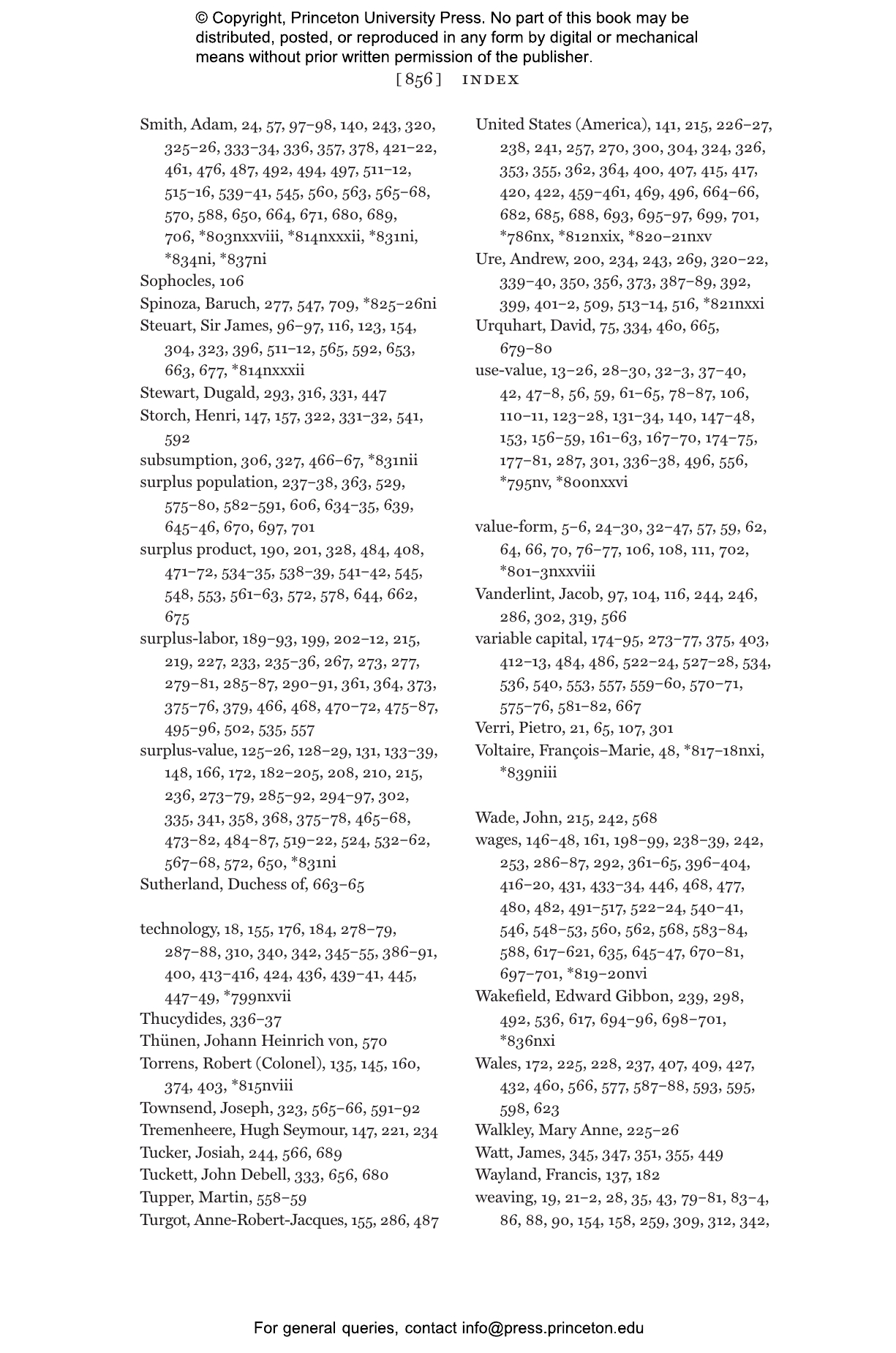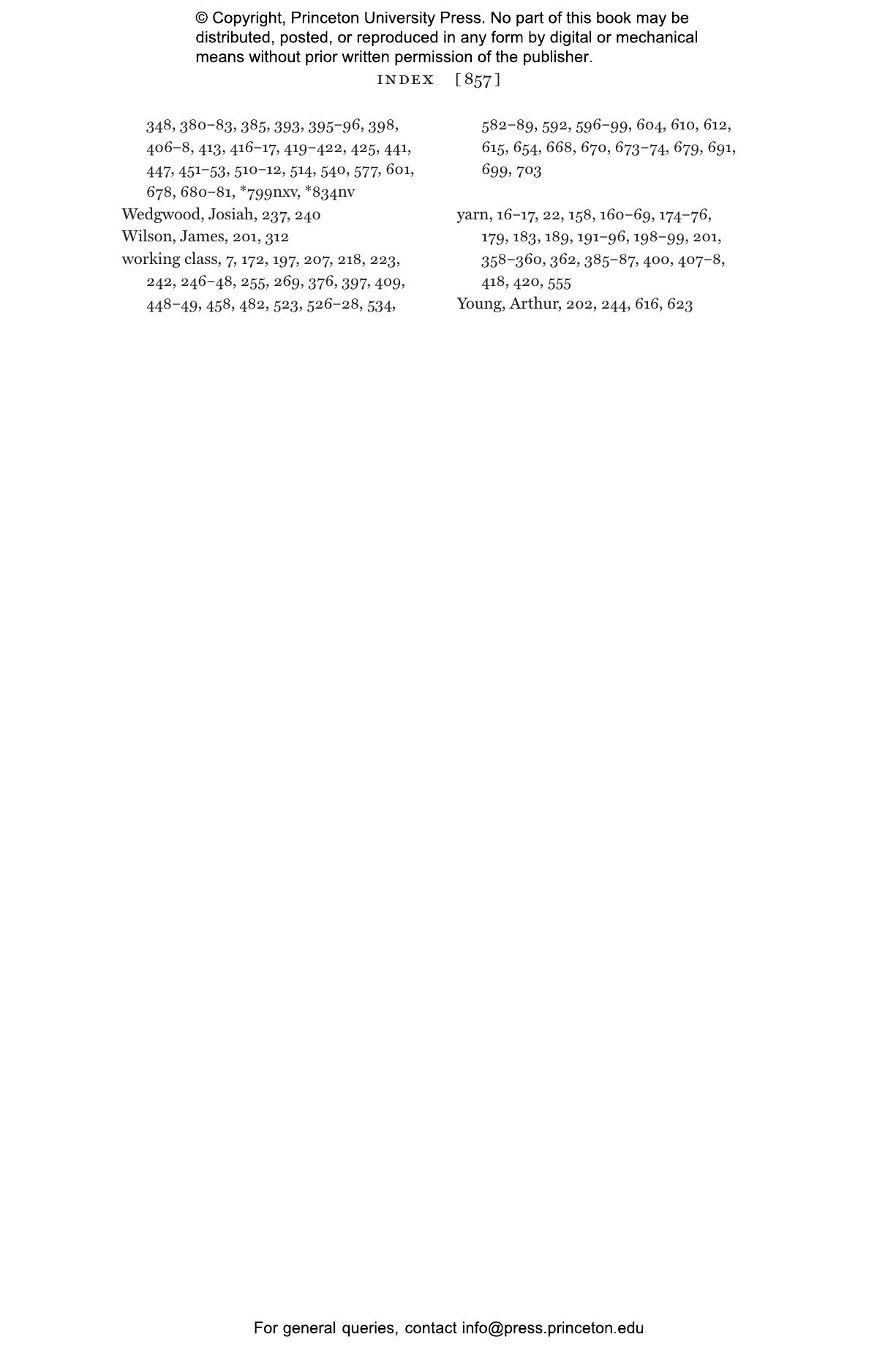Karl Marx (1818–1883) was living in exile in England when he embarked on an ambitious, multivolume critique of the capitalist system of production. Though only the first volume saw publication in Marx’s lifetime, it would become one of the most consequential books in history. This magnificent new edition of Capital is a translation of Marx for the twenty-first century. It is the first translation into English to be based on the last German edition revised by Marx himself, the only version that can be called authoritative, and it features extensive commentary and annotations by Paul North and Paul Reitter that draw on the latest scholarship and provide invaluable perspective on the book and its complicated legacy. At once precise and boldly readable, this translation captures the momentous scale and sweep of Marx’s thought while recovering the elegance and humor of the original source.
For Marx, our global economic system is relentlessly driven by “value”—to produce it, capture it, trade it, and, most of all, to increase it. Lifespans are shortened under the demand for ever-greater value. Days are lengthened, work is intensified, and the division of labor deepens until it leaves two classes, owners and workers, in constant struggle for life and livelihood. In Capital, Marx reveals how value came to tyrannize our world, and how the history of capital is a chronicle of bloodshed, colonization, and enslavement.
With a foreword by Wendy Brown and an afterword by William Clare Roberts, this is a critical edition of Capital for our time, one that faithfully preserves the vitality and directness of Marx’s German prose and renders his ideas newly relevant to modern readers.
Awards and Recognition
- A Millions Most Anticipated Book of Summer
"No previous English version of ‘Capital’ has featured such an erudite critical apparatus or such an exacting translation. It’s a remarkable achievement that forces readers to attend to the philosophical subtleties of Marx’s argument."—James Miller, New York Times Book Review
"In a world that burns more quickly by the day—after centuries of industrial rapacity, and with ever-increasing flares of fascism—a new English translation of Marx, and the first to be based on his final revision of this foundational critique of capitalism, is just what the people ordered."—The Millions
"Marx’s model of capitalism as an inherently crisis-generating system became more plausible to many readers in the wake of the global financial system’s near-collapse in 2008. Arriving 16 years later—to the month, as it turned out—Princeton University Press’s new translation of Capital arrives as a certified classic. The edition draws on generations of scholarship on Marx’s economic manuscripts, which are voluminous in mass and headache-making in penmanship. Prefatory essays by the political theorist Wendy Brown and by Paul North, a scholar of German literature, move between the 19th-century context of Marx’s writing and the 21st-century horizon of the new edition’s readers."—Scott McLemee, Inside Higher Ed
"The introduction, translation, and critical notes, by Paul North and Paul Reitter simply make this the edition to have."—David Murphy, Open Letters Review
"The Reitter translation of Capital will likely be the English speaking world’s access text to Marx for at least the next fifty years, as the Fowkes was before it. . . . Reitter’s new translation continues the life of Capital, creating something new while faithfully delivering an accurate text."—M. P. Ross, Applied Political Theory
“An astounding achievement.”—China Miéville, author of October: The Story of the Russian Revolution
“Marx’s Capital is surely among the most difficult of texts a translator can face. With deftness and aplomb, Paul Reitter has risen to the challenge to produce a translation that will surely become a standard for new readers and a beacon for scholars seeking new insights into one of the few masterworks that can legitimately claim to have changed the course of history.”—Arthur Goldhammer, translator of Thomas Piketty’s Capital in the Twenty-First Century
“This translation is a revelation precisely because it catches the rhetorical subtlety and sinuous rhythms of Marx’s prose. The text takes Marx’s neologisms into English to get his ontological weirdness exactly right, and to puzzle readers today in exactly the way that he wanted.”—Terrell Carver, University of Bristol
“By bringing out the sharpest edges of Marx’s concepts in the course of their development, Paul North and Paul Reitter make his style visible in unprecedented ways. This refreshingly faithful, judiciously annotated translation is destined to become the center of an exciting new revival of Marx’s thought for everyone.”—Sianne Ngai, author of Theory of the Gimmick: Aesthetic Judgment and Capitalist Form
“In this new edition of Volume I of Capital, Paul Reitter and Paul North offer a new occasion and a new and ample set of reasons to deepen our study of Marx’s invaluable critique of value. The generous severity of what he gives and what they regift provides for our sustenance and renewal with an analytic force that only love and fury can inspire, showing us what we can create and what we must destroy.”—Fred Moten, author of In the Break: The Aesthetics of the Black Radical Tradition
“A momentous achievement. With clear, direct prose that captures the artistry, wit, and philosophical complexity of the original text, and helpful editorial notes that provide crucial background for both novice and seasoned readers, Reitter and North have produced an edition of Capital that will put Marx’s unrivaled critique of capitalism in its rightful place as essential reading for anyone aiming to understand and transform our historical present.”—Karen Ng, author of Hegel’s Concept of Life: Self-Consciousness, Freedom, Logic
“Capital is the work of Marx that truly deserves to be read. It elucidates the magical power of the ‘fetish,’ which developed out of commodity exchange and came to dominate the whole world. This new translation will make this magical power more widely understood.”—Kōjin Karatani, author of Marx: Towards the Centre of Possibility
“Marx was an incredibly subtle writer, constantly playing in his texts with allusions to classical novels and dramas, popular sayings, and historical narratives. In his theoretical masterpiece, the first volume of Capital, he brought this art to perfection. Paul Reitter has managed, with a rare combination of accuracy and imagination, to do justice to all the artistry of Marx’s text. This new translation will, I think, sooner or later replace all the older editions.”—Axel Honneth, author of The Poverty of Our Freedom
“A translation for our times. Based on the last German edition that Marx himself revised and approved for publication, this new reading successfully captures his theoretical understanding, vigorous humor, and righteous anger. The resulting text is keenly attuned to the literary and logical structure of Capital, conveying both the complex rhythms of Marx’s language and the continuing relevance of his reasoning.”—David Leopold, author of The Young Karl Marx: German Philosophy, Modern Politics, and Human Flourishing


